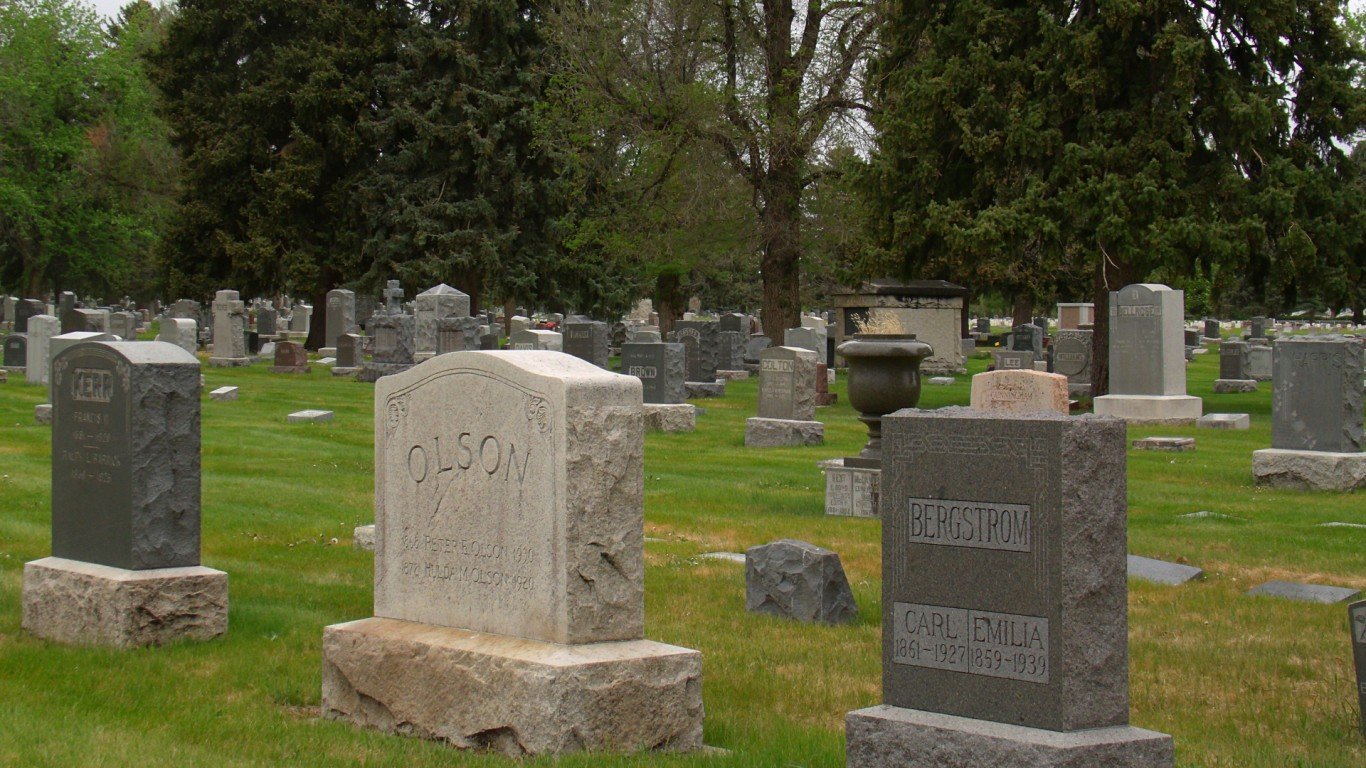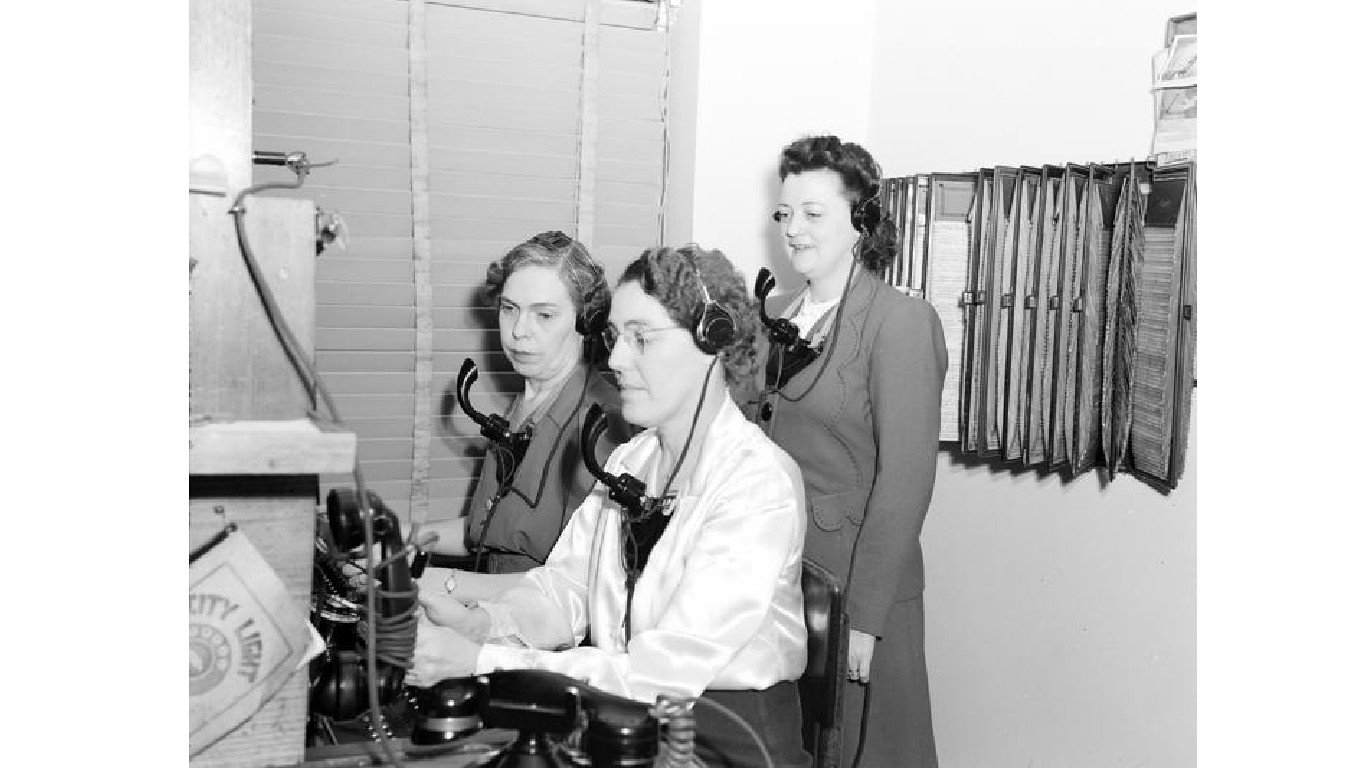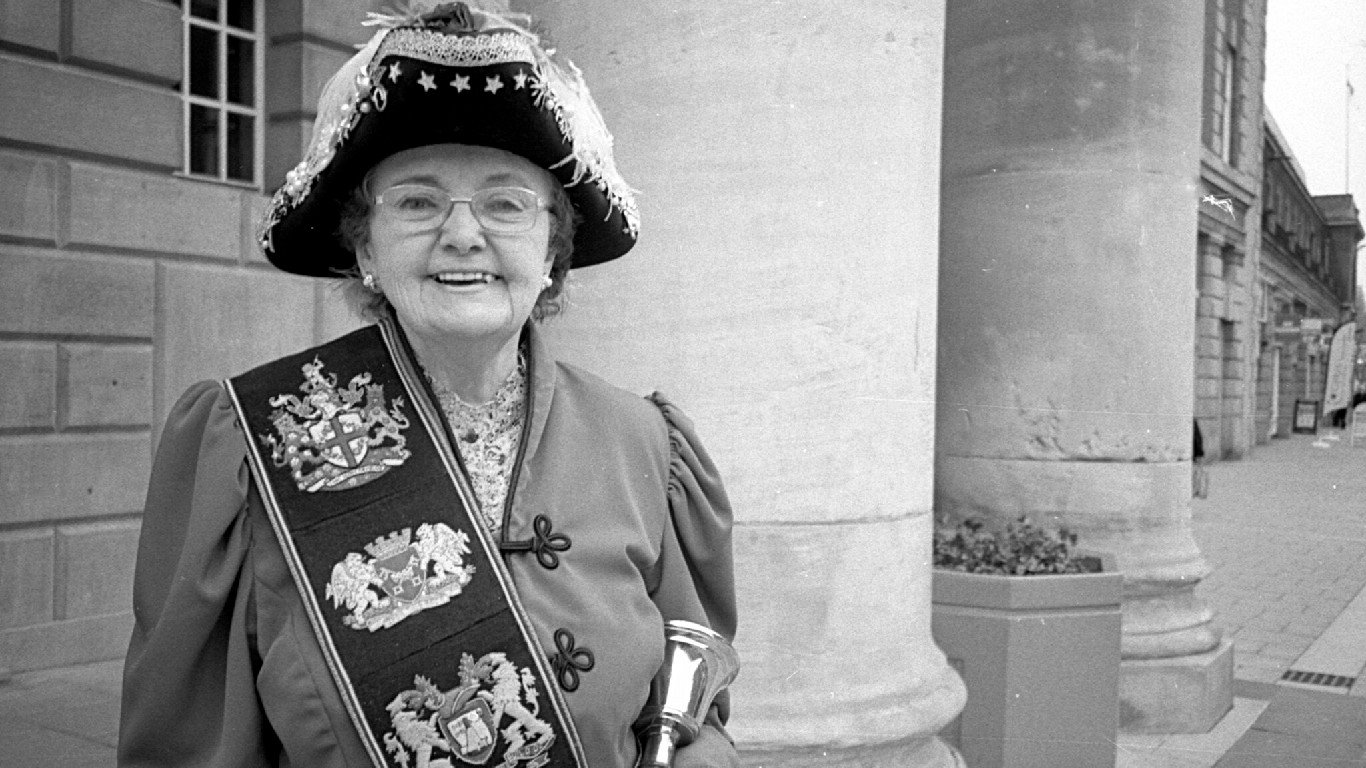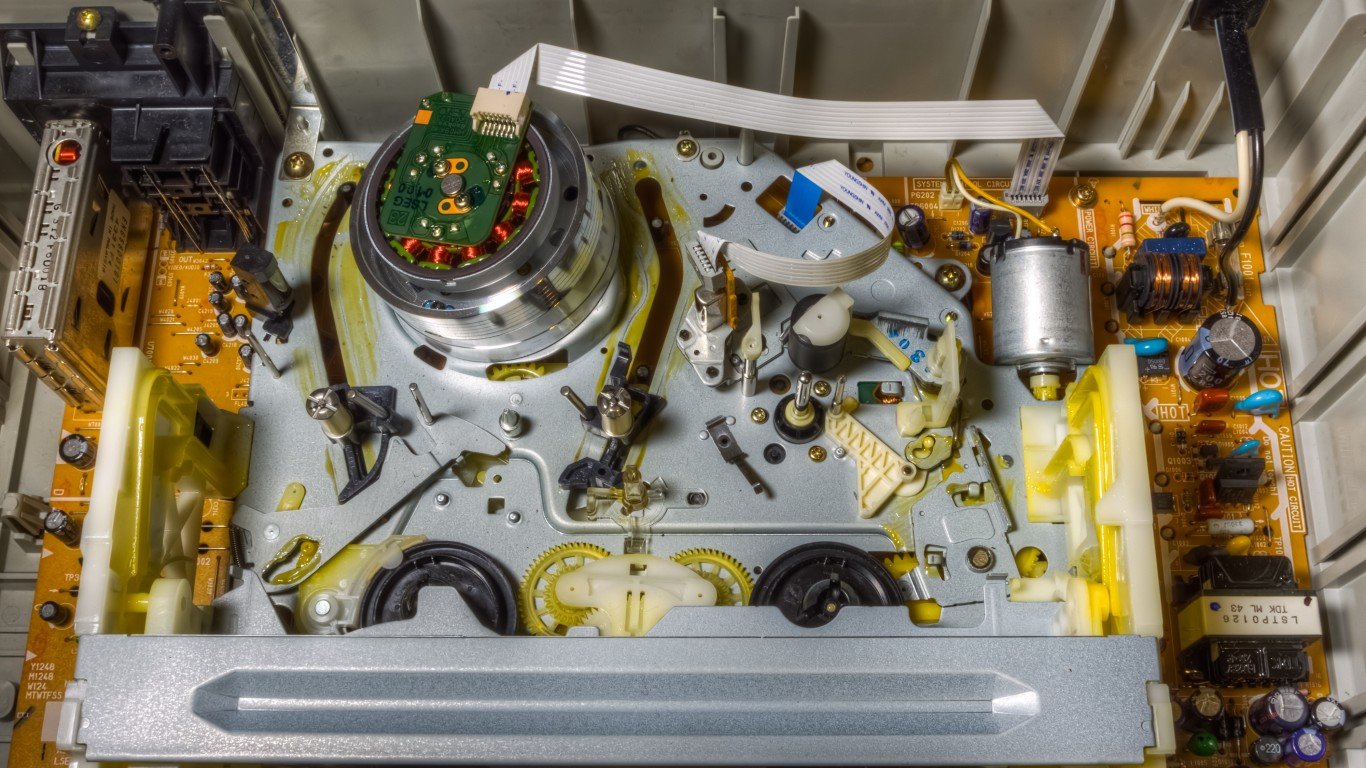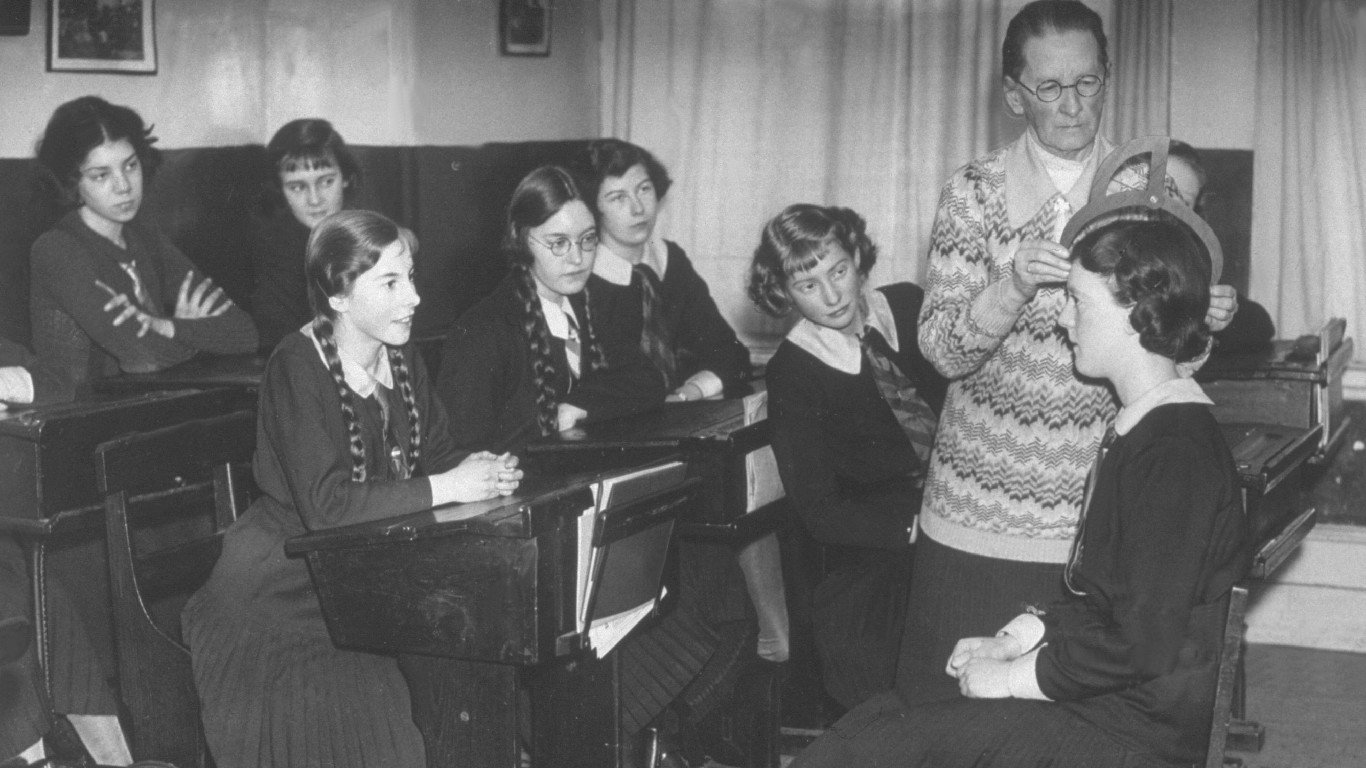

As civilizations have evolved over the years, so have the jobs that cater to our wants and needs. Innovations have made some lines of work obsolete while also creating new ones. Some now-vanished jobs involved what was once cutting-edge technology, like the telegraph and the linotype machine. Learning to operate these seemed like a sure career bet – but even the most modern inventions are eventually replaced with something better and more efficient. (These are the fastest growing and shrinking clean energy jobs.)
To compile a list of jobs that were once commonplace but now are virtually extinct, 24/7 Tempo consulted a wide range of sources, including the New York Times, the Chicago Tribune, Atlas Obscura, GoneJobs, History Daily, and Historic UK.
Some of the jobs on our list were the equivalent of today’s internships, starting out on the bottom rung of an industry and making tea or running errands for the higher-ups. Others, like phrenologist and leech collector, were based on pseudoscience that has since been debunked. However, the fact that these jobs were so commonplace at the time shows that people seriously believed in ideas that we now find ridiculous.
Click here to see jobs that used to be common but no longer exist
Past occupations tasked with providing water and light show how modern infrastructure has drastically changed the way people live. Other positions dealt with human waste and its odors, highlighting just how much we take modern sewage infrastructure for granted. The disappearance of such professions reminds us how much easier human ingenuity and modern technology have made our lives. (You might laugh at some of these obsolete gadgets we used to be obsessed with.)
Arabber
> In demand approximately until: 21st century
Arabbers were street vendors who sold fresh fruit and vegetables from horse-drawn carts. Their carts were normally brightly painted and the vendors used signature slogans and chants to draw in clients. The number of arabbers declined throughout the 20th century with the expansion of supermarkets and the reduction in public horse stables. The job was once especially common on the East Coast, and a handful of arrabers still carry on the tradition to this day in Baltimore.
[in-text-ad]

Billy boy
> In demand approximately until: 1960s
Billy boys were mainly tasked with starting fires and brewing tea in “billy” cans for groups of laborers and tradesmen. They were young apprentices who were learning a trade and starting out at the bottom. The position was popular in the United Kingdom, Australia, and New Zealand and fell off with the rise of more formal apprenticeships and more modern methods for preparing tea.
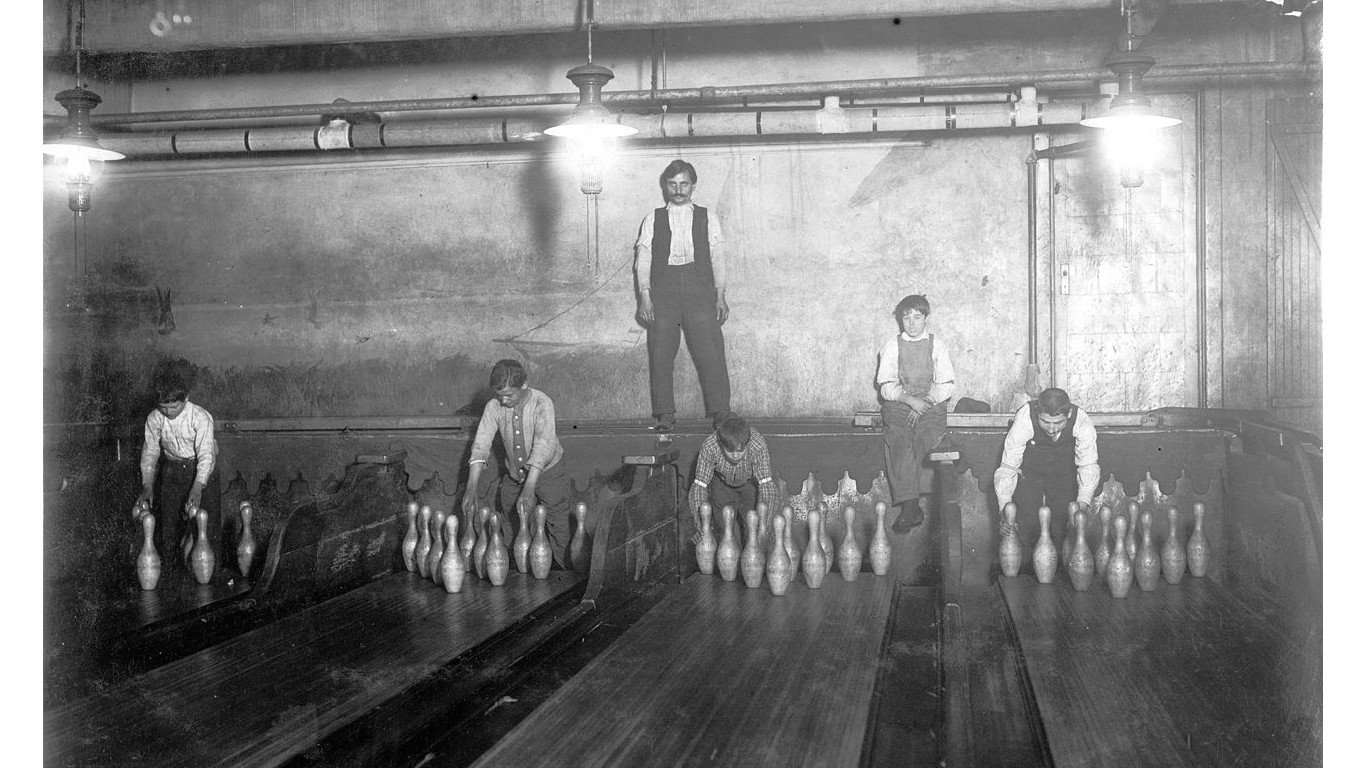
Bowling pin setter
> In demand approximately until: Late 1940s
Before machines existed to reset bowling pins and return balls, the job was done manually. Normally boys and young men would work in bowling alleys, keeping lanes running smoothly. With the invention of mechanical pinsetters in the 1940s, the job quickly became obsolete.
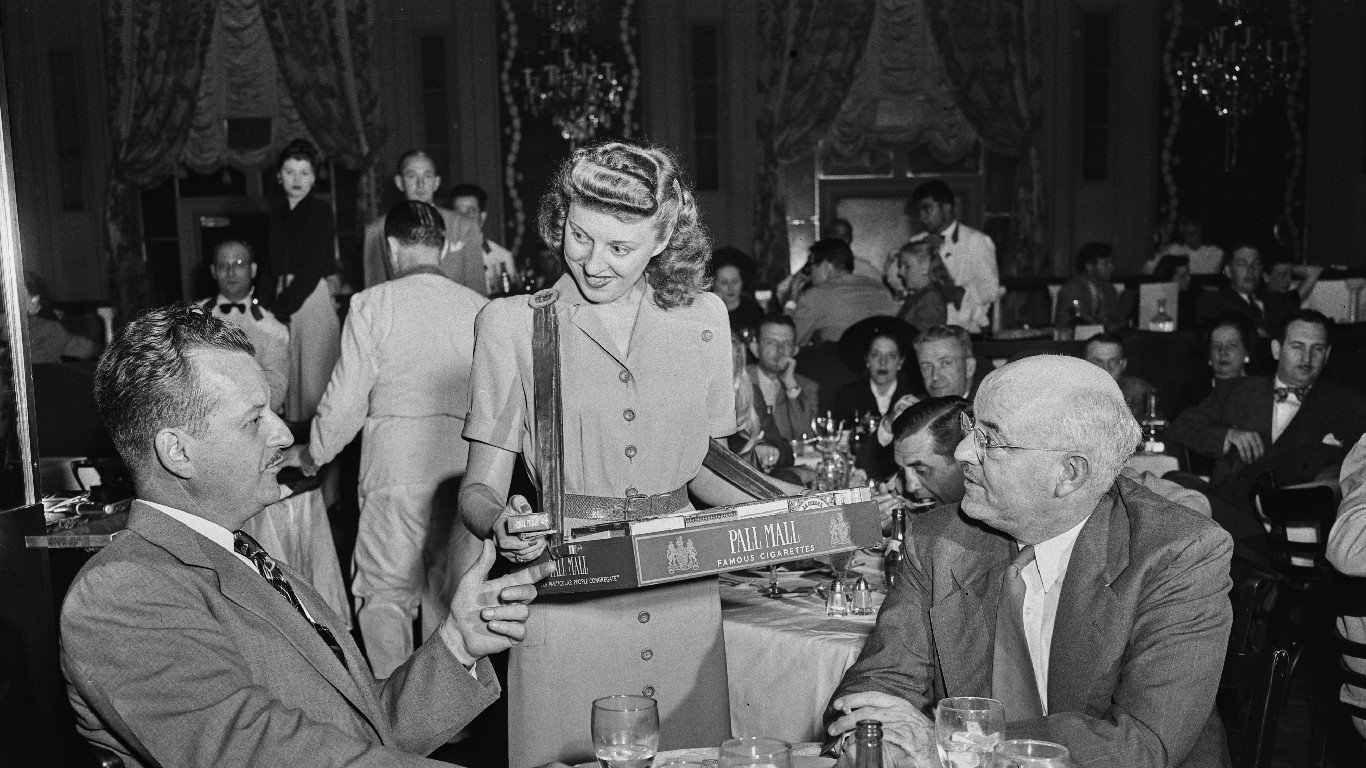
Cigаrette girl
> In demand approximately until: Mid-1950s
Cigаrette girls worked at speakeasies, night clubs, restaurants, sporting events, and other venues. They normally wore short skirts and pillbox hats and carried trays filled with cigаrettes, cigаrs, and candy and other snacks. Cigаrette machines became popular in the mid-1950s and replaced most of the workers and anti-smоking laws extinguished the trade for good. However, a few casinos and nightclubs, especially in Las Vegas, still employ cigаrette girls.
[in-text-ad-2]
Clock winder
> In demand approximately until: Late 20th century
Before electric clocks were invented, clocks had to be wound up by hand. Clock winders would climb up into the inner workings of large clock towers and turn their mechanisms to keep the massive timepieces functioning. The clock tower that houses London’s Big Ben still employs a clock winder.
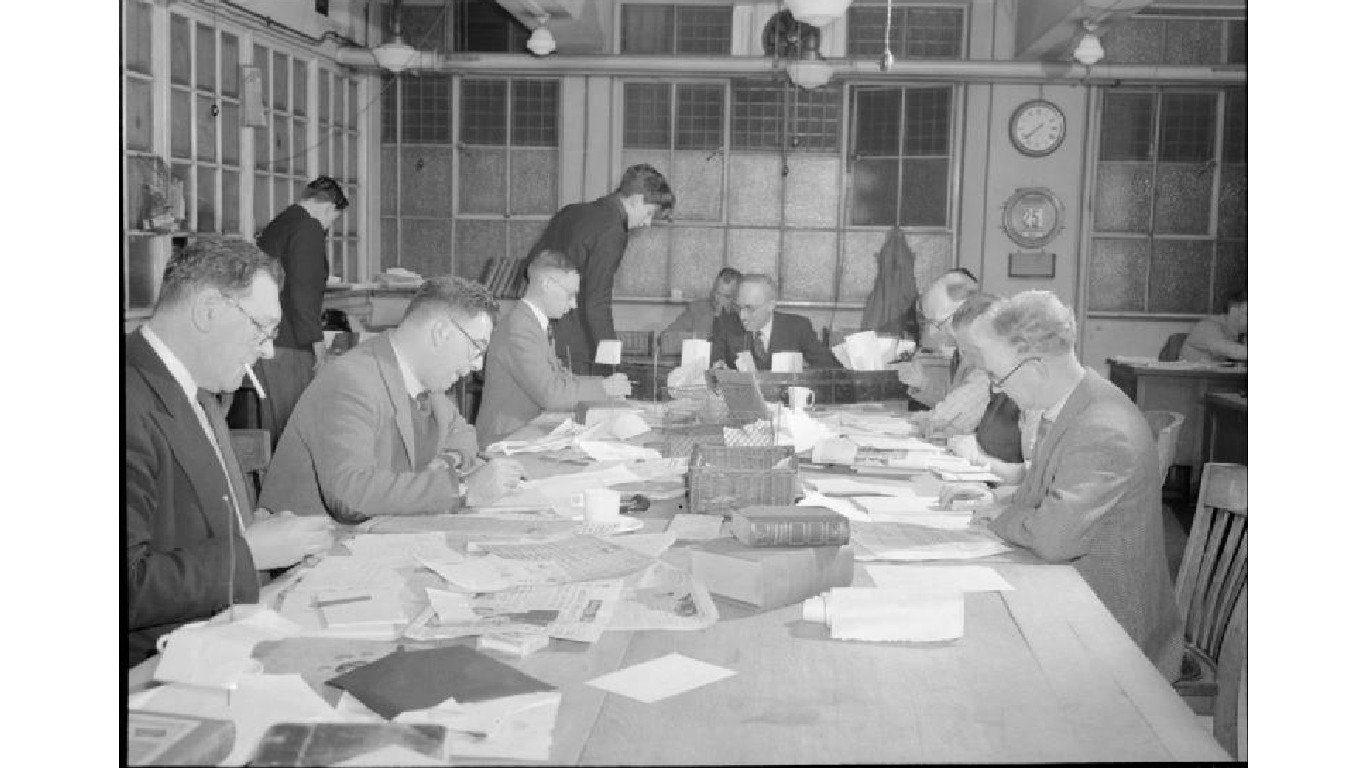
Copy boy
> In demand approximately until: Early 21st century
Copy boys, often the most junior members of a newspaper staff, were tasked with bringing typed stories from one department of a newspaper to another. With the advent of the internet and other ways of transporting information, the job became basically extinct.
[in-text-ad]
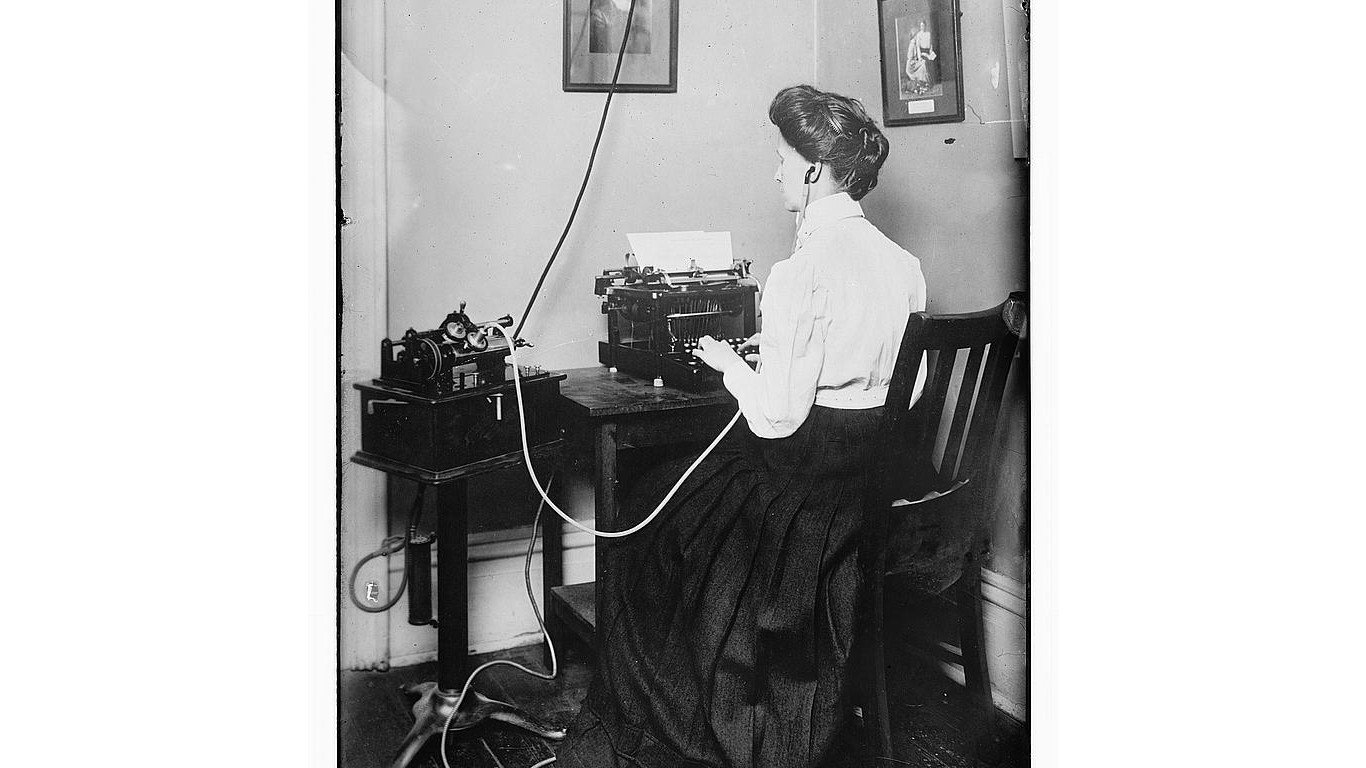
Dictaphone operator
> In demand approximately until: Mid-20th century
The Dictaphone, one of the first machines capable of recording sound, was commonly used to record speech to be played back and transcribed. The machine was invented by Alexander Graham Bell and used wax to imprint recordings. The job became obsolete with more convenient recording and playback technology.
Dog whipper
> In demand approximately until: 17th century
Jobs exist when there is a significant demand for the services they provide and apparently, for several centuries in Europe, there was a serious need for someone to keep unruly dogs off church property during services. At the time, it was common for household dogs to follow their owners to church, and someone had to deal with the ones that misbehaved. Dog whippers normally carried a long whip and a pair of tongs for removing canines.
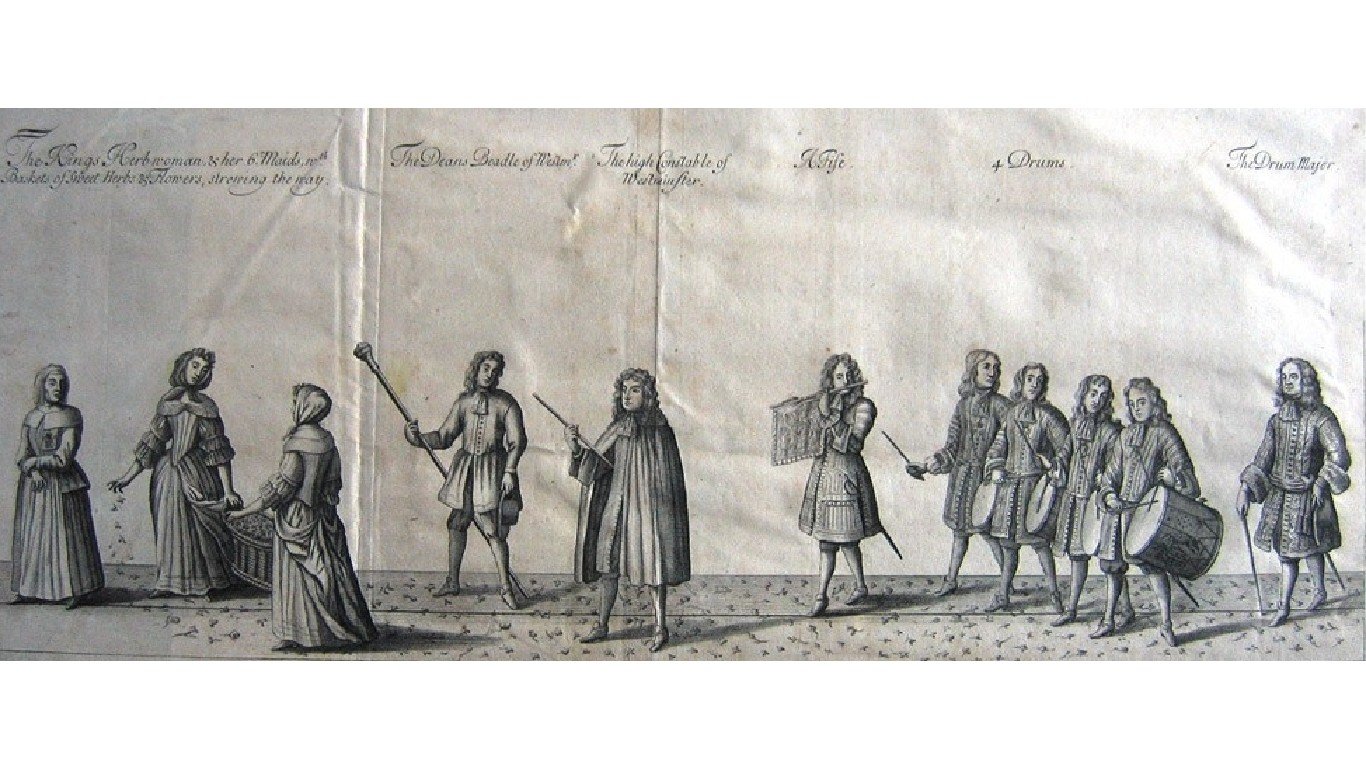
Herb strewer
> In demand approximately until: 1850s
Herb strewers spread herbs and flowers around royal and noble residences in the UK to mask the unpleasant odors of life before sewer systems became prevalent in the 1850s and after. The creation of sewage infrastructure made the position obsolete.
[in-text-ad-2]
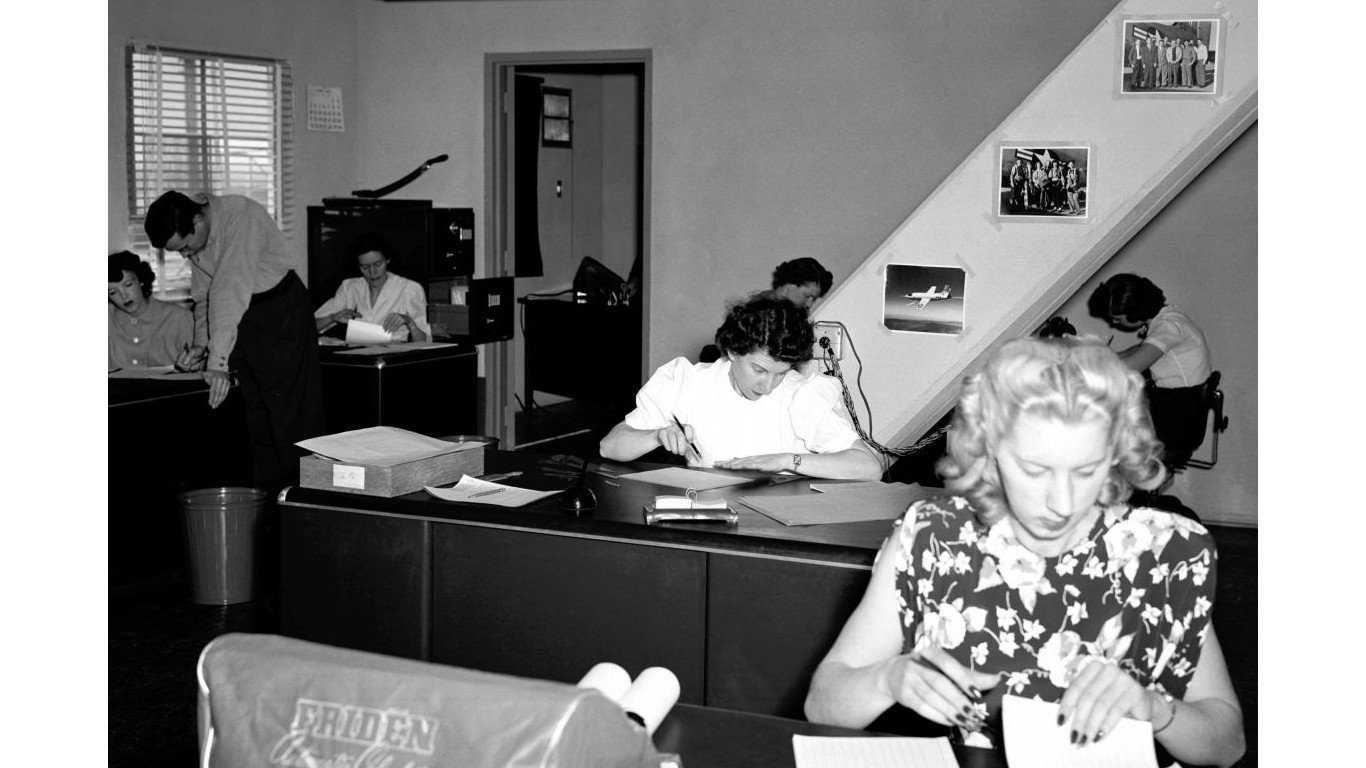
Human computer
> In demand approximately until: 20th century
Human computers were people whose jobs were to complete advanced mathematical calculations. They often worked in multiple teams to ensure accuracy. The rise of mechanical computers made their jobs obsolete.
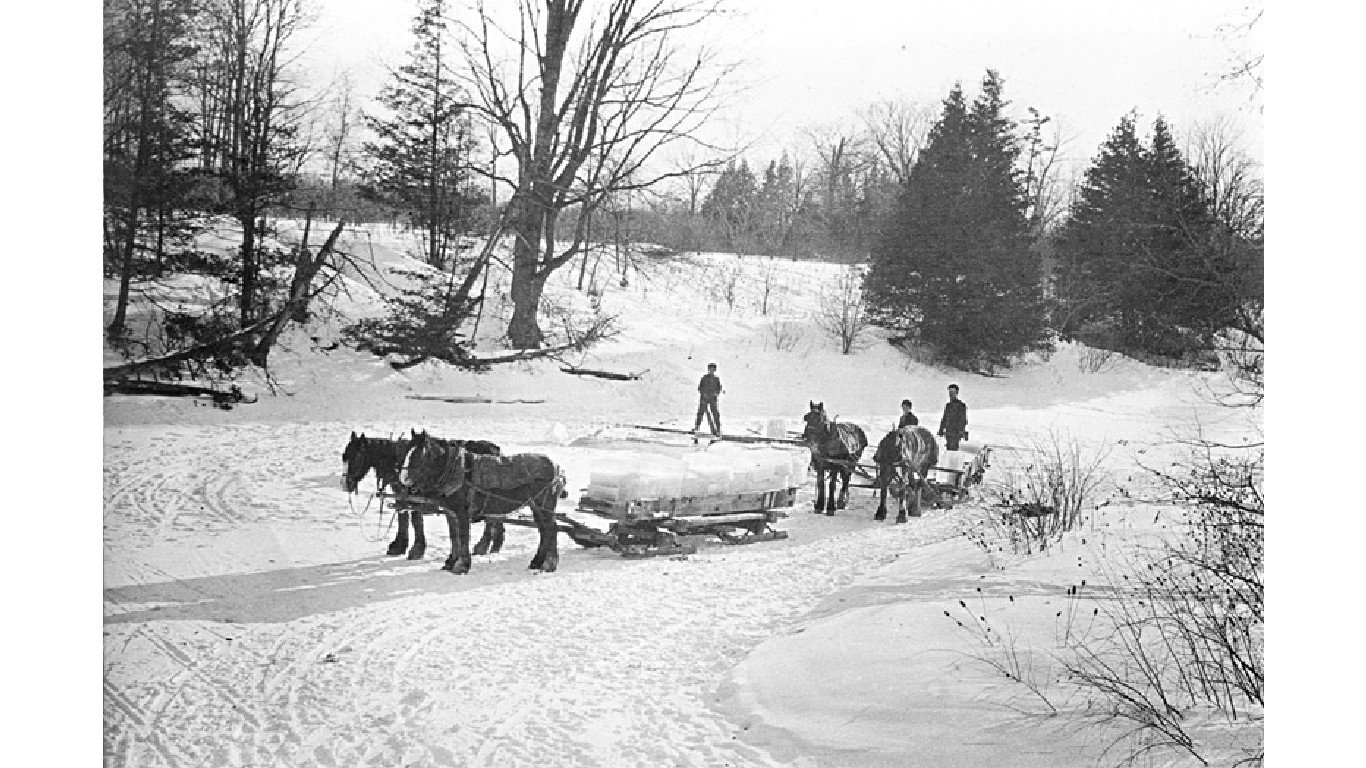
Ice cutter
> In demand approximately until: 1920s
Ice cutters would head out to frozen rivers, lakes, and ponds, cut large chunks of surface ice, and haul them home for personal use or to sell. Before the invention of mechanical refrigerators, people kept food cold in ice boxes or ice houses. The rise of industrial plants for producing ice and then the introduction of home refrigerator-freezers in the late ’20s obviated the need to harvest natural ice.
[in-text-ad]
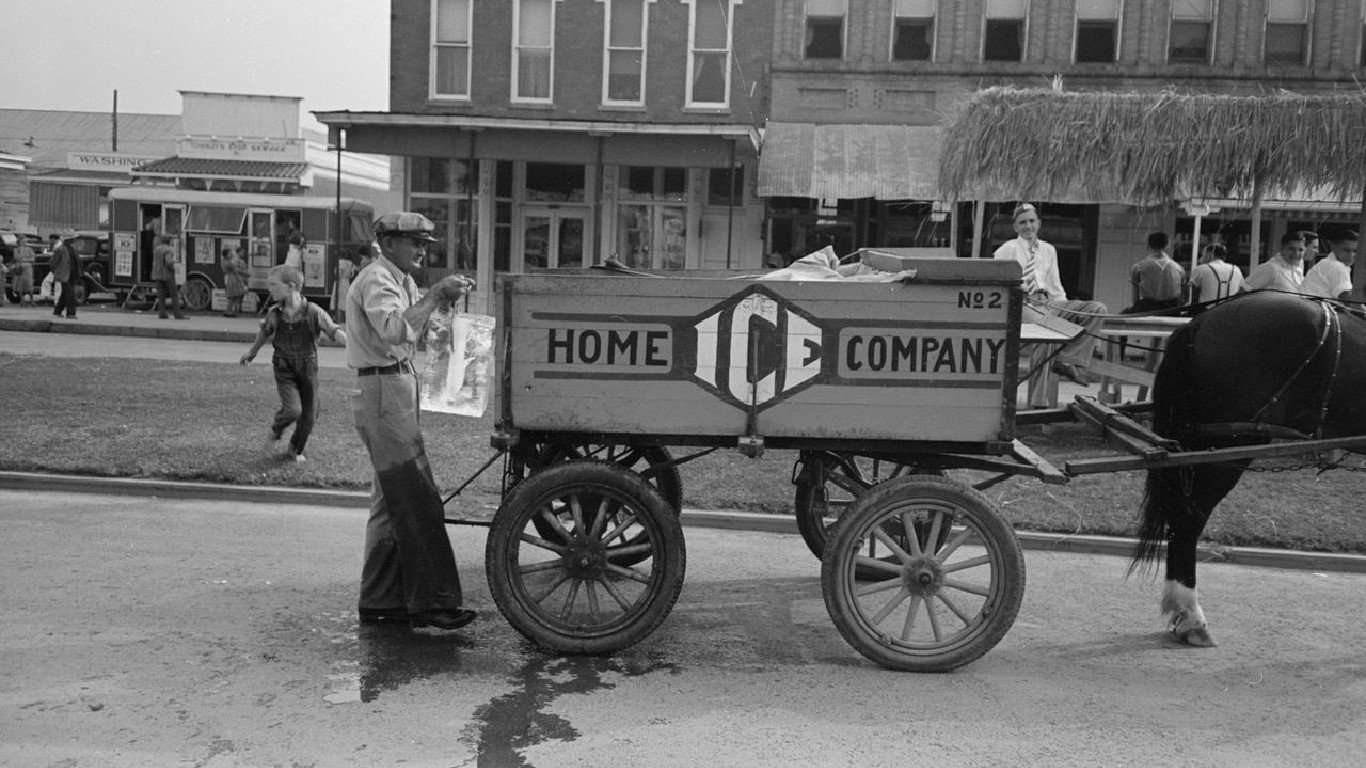
Iceman
> In demand approximately until: Mid-1950s
Delivering ice – usually manufactured rather than cut in the wild- to residents and businesses in cities was a popular job, especially when the ice trade was booming. Ice was usually delivered in large blocks and customers would have to break up the ice with an ice pick. The invention of in-home freezers and ice makers made the need for ice delivery largely obsolete.
Knocker-upper
> In demand approximately until: 1950s
A knocker-upper was a human alarm clock, especially in Great Britain and Ireland. He wielded a long massive pole, used to bang on the windows of clients when it was time for them to wake up. Knocker-uppers were largely employed by mill and dock workers who often worked irregular shifts. They were replaced by the increased availability of cheap alarm clocks in the ’40s and ’50s, though a few persisted in their trade in industrial regions into the early 1970s.

Factory lector
> In demand approximately until: 1930s
Lectors were readers who worked in cigar factories to keep employees entertained and in good spirits through long days of performing the same repetitive tasks. The lector’s job was to read from local papers, works of literature, and other publications. The position began in factories in Cuba and spread to other places where cigar factories existed. Lectors became obsolete when machinery was introduced to factories, and they could no longer be heard over the noise.
[in-text-ad-2]
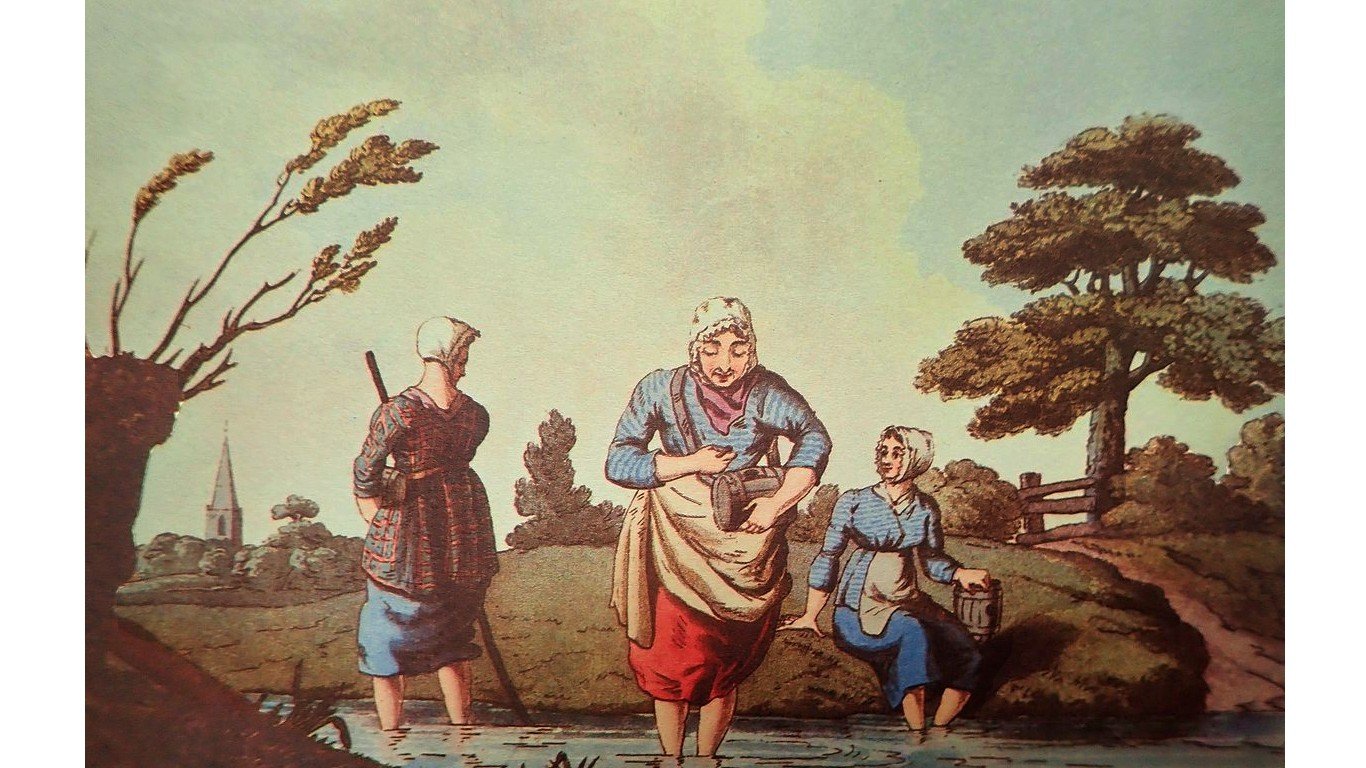
Leech collector
> In demand approximately until: Late 19th century
Leeches were first used in bloodletting, a procedure where medical “experts” would remove bad blood from a patient, in ancient times, but the practice persisted into the late 1800s in some places. The collector was tasked with gathering leeches, often using his own leg as bait in bogs and marshes. Collectors frequently suffered consequences from infections and excessive blood loss. The job went extinct when bloodletting was debunked.
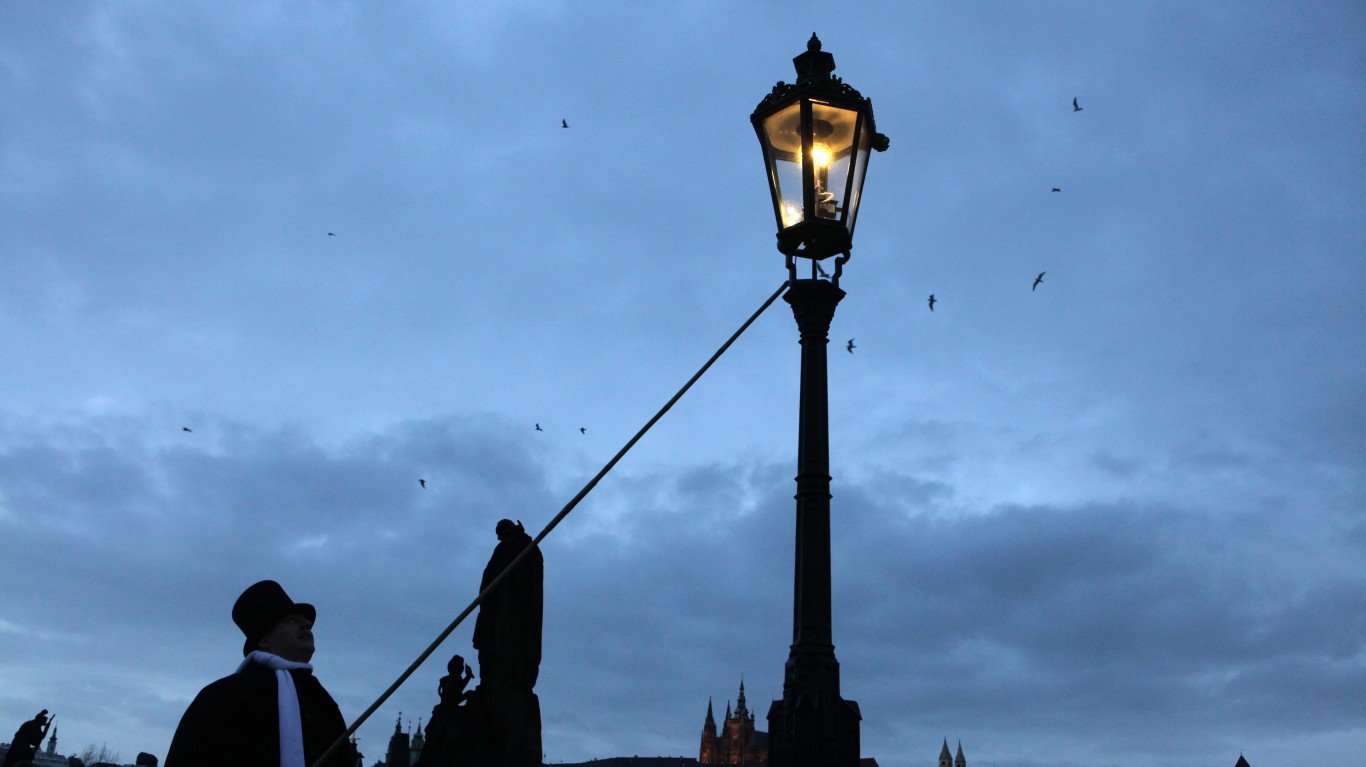
Lamplighter
> In demand approximately until: Early 20th century
Before electricity was commonly used, streets were lit by candle or gas street lamps. Instead of flipping a switch and turning on a whole system, individuals had to go from lamp to lamp and light them at dusk every day, returning every morning at dawn to put them out. The profession was no longer needed when electric lights replaced gas ones.
[in-text-ad]
Link boys
> In demand approximately until: Mid-20th century
In 18th- and 19th-century England, before street lights were commonplace, people would hire link boys to help illuminate their journey home. Groups would gather and boys carrying torches would lead them safely through the dark to their destination. The rise of street lights made the service unnecessary.
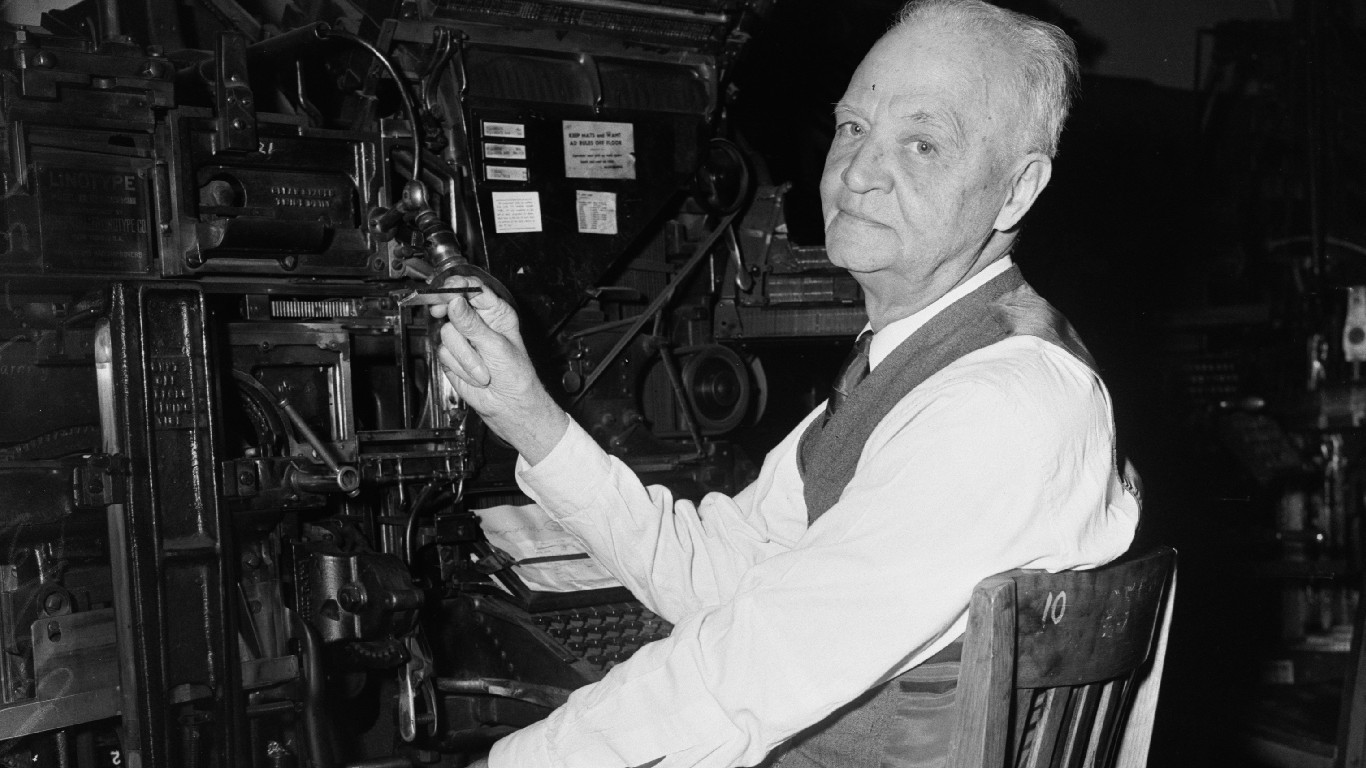
Linotype operator
> In demand approximately until: 1970s
Invented in the 1880s, the linotype was the main type of press used to print newspapers until the 1970s. They used hot metal typesetting to cast blocks of metal type that would then be used to print all sorts of works. At the time of its invention, the linotype revolutionized printing and made it much more efficient. However, one hundred years later it was replaced by photo and computer typesetting.
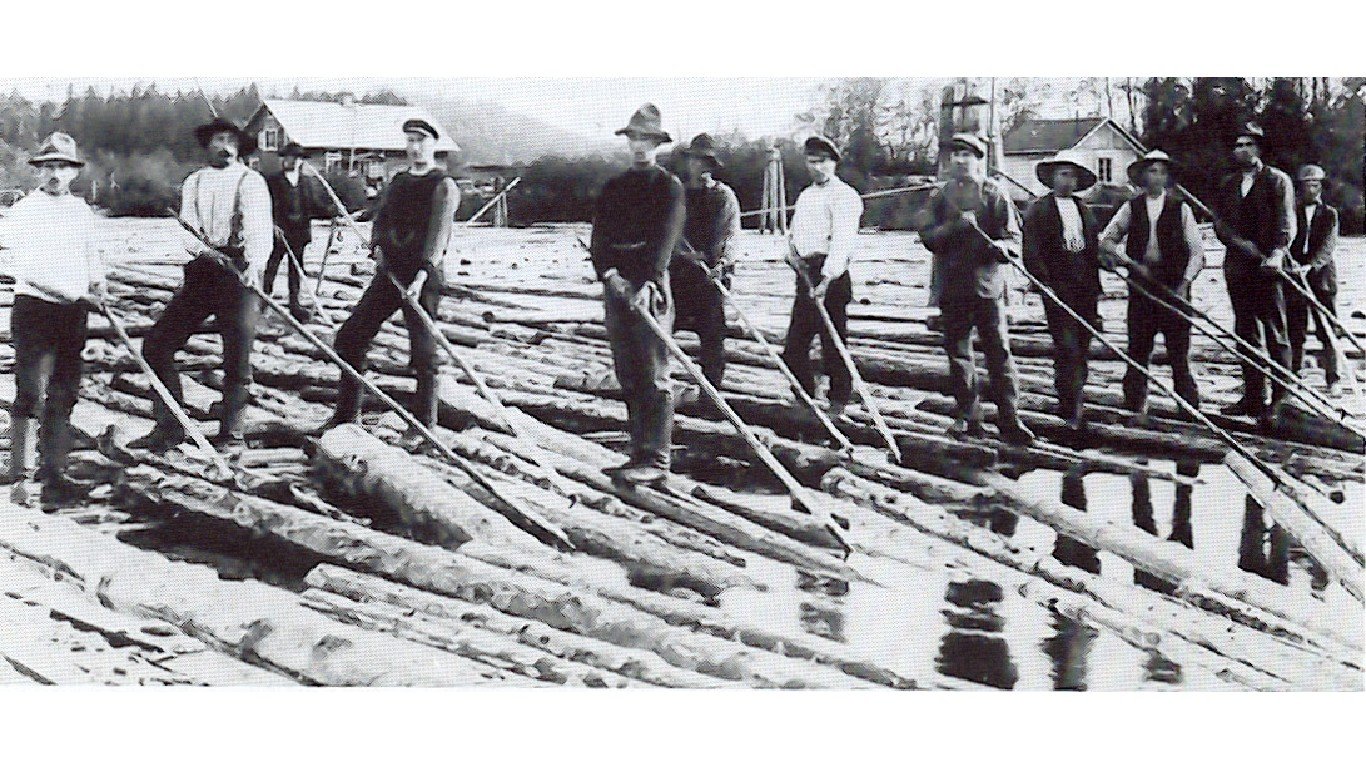
Log driver (aka river pig)
> In demand approximately until: 1950s
Forests where lumberjacks cut down trees for lumber were often far from major settlements, and the easiest way to transport logs was by floating them down a river. However, this was not always easygoing and log drivers would travel with the logs to make sure they flowed smoothly. The work was often very dangerous as drivers would walk across and maneuver massive logs through treacherous waters. The invention of modern trucks and other heavy equipment made transporting logs over land much easier and made log driving an unneeded and risky venture.
[in-text-ad-2]

Matchstick maker
> In demand approximately until: Early 20th century
Matchstick making was a dangerous profession that exposed workers to high levels of phosphorus on a daily basis. The invention of “strike anywhere” matches used white phosphorus on their tips and made them much more toxic. Eventually, humans who made matches were replaced by machines.
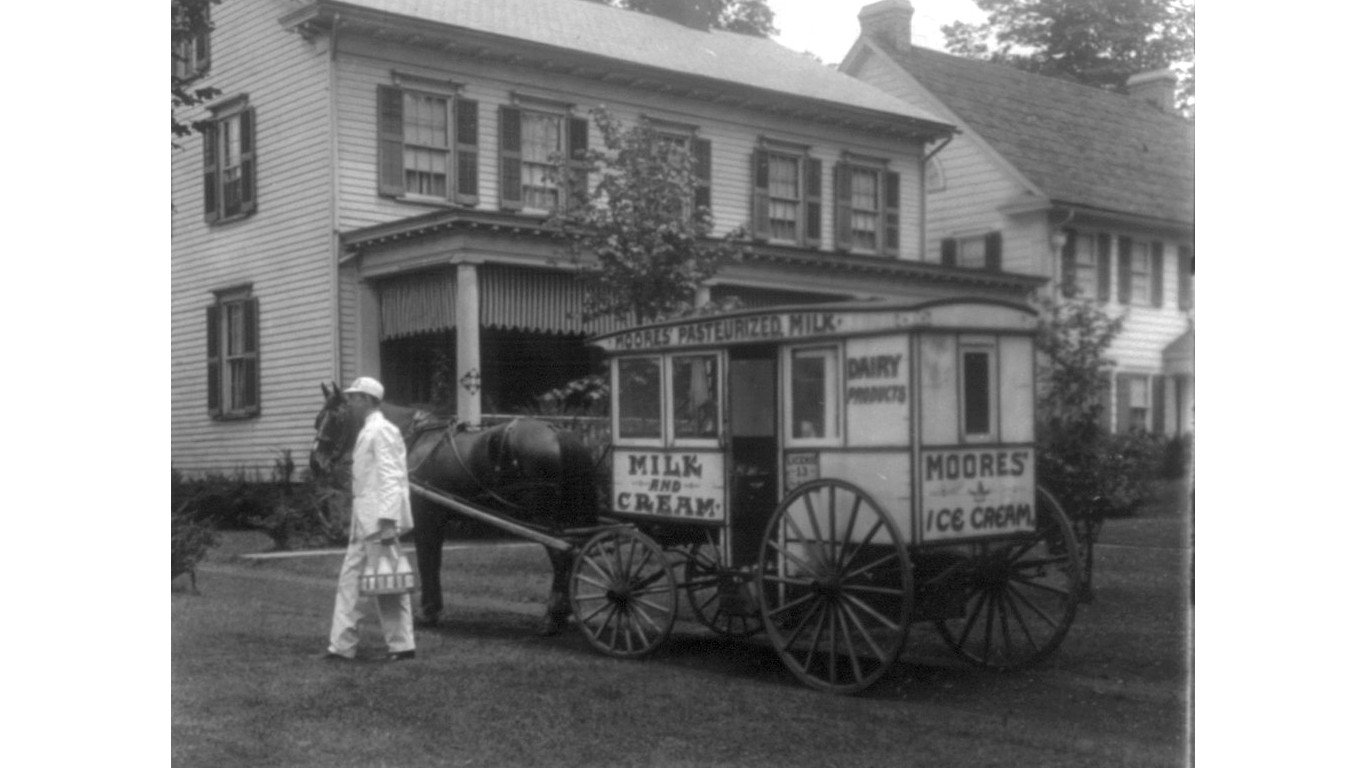
Milkman
> In demand approximately until: 1970s
Before refrigeration and preservation methods were commonplace, people had milk and other dairy products delivered daily. In the 1860s, deliveries were made by horse-drawn wagons, with motorized vehicles eventually taking their place. There are still milkmen (and -women) in some places, operating on a small scale, but by the 1970s, most people stopped having their milk delivered and the trade died out..
[in-text-ad]
Night soil men
> In demand approximately until: 19th century
Night soil men worked a pretty dirty job. Before indoor plumbing, they would transport and dispose of human waste, taking it from urban centers to rural areas where it was used as fertilizer. They worked primarily at night and were eventually put out of a job with the rise of sewage systems.

Phrenologist
> In demand approximately until: Mid 19th century
Phrenology is a pseudoscience that links bumps on a person’s head to personality and character traits. It originated in the late 1700s, with the physician who invented it believing that bumps on human brains were detectable on the exterior of skulls and that these bumps were indicators of morality and intelligence. The profession was thoroughly discredited as early as the 1840s.
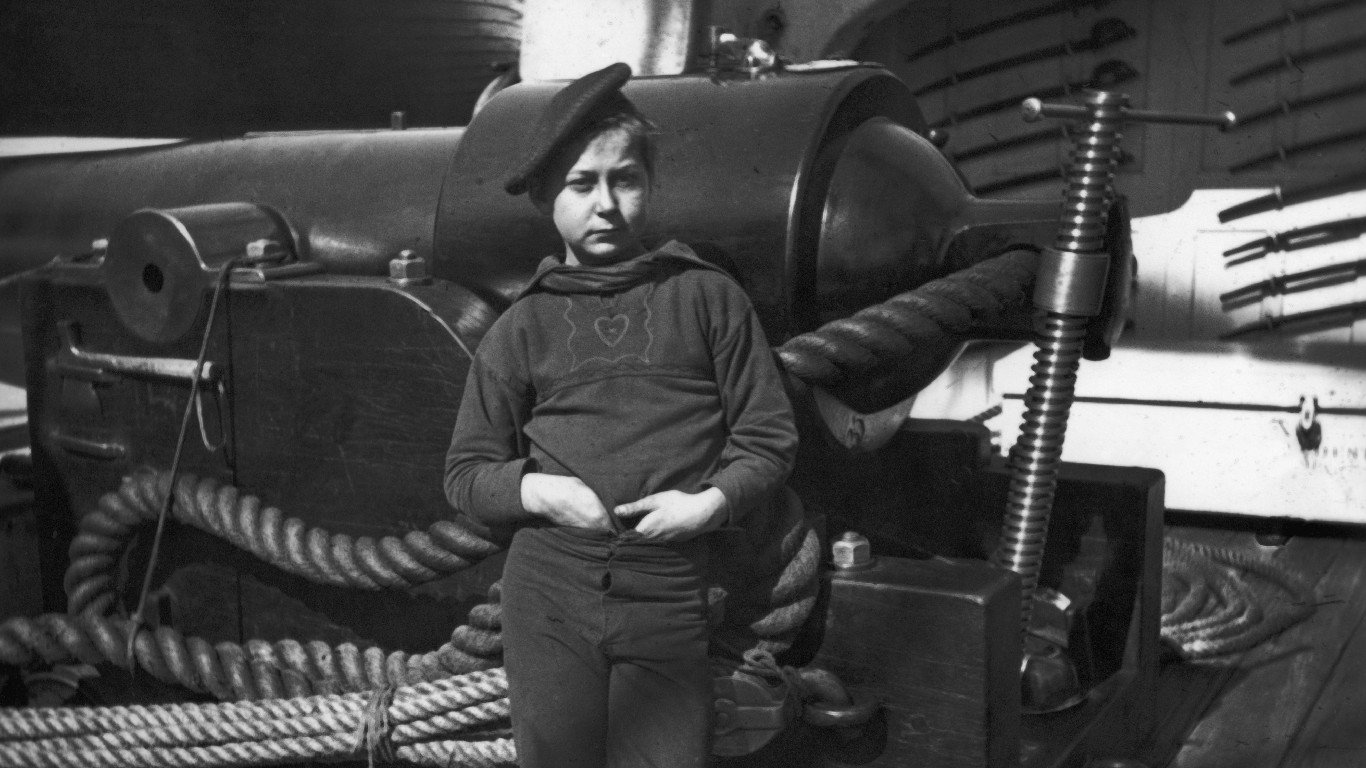
Powder monkey
> In demand approximately until: Late 19th century
A powder monkey was a boy usually between 12 and 14 years old who worked on sailing warships, bringing gunpowder from the ship’s hold to be used in combat. Smaller boys were preferred as they could more easily move throughout the tight quarters of a ship. Weaponry evolved, though, and powder monkeys were no longer needed by the late 1800s.
[in-text-ad-2]
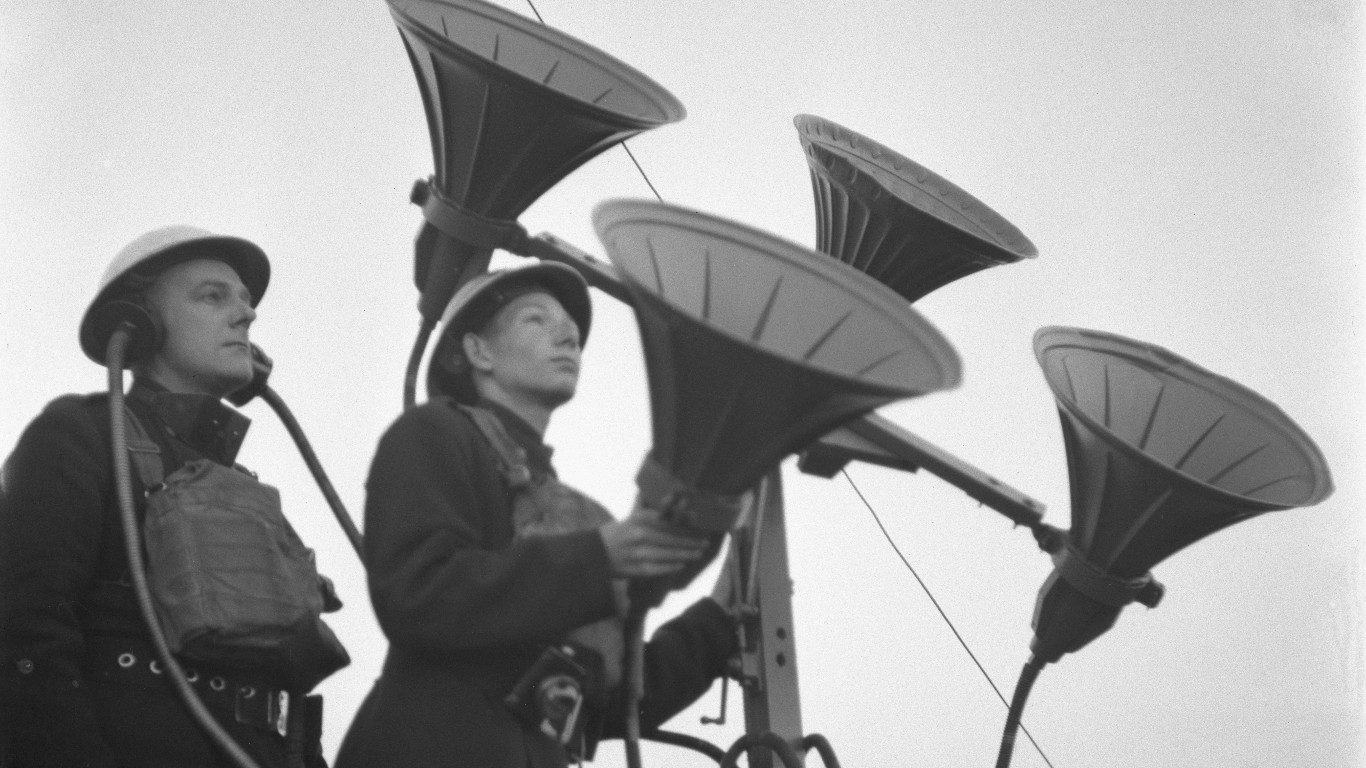
Pre-radar listener
> In demand approximately until: World War II
Before the invention of radar, soldiers used massive metal tubes to listen for the sounds of approaching enemy aircraft. The devices, nicknamed “war tubas,” were first used in World War I. Operators would tilt the devices and use a stethoscope to try to lock in on the altitude and location of enemy aircraft. The invention of radar quickly replaced these listening devices.

Pure Finder
> In demand approximately until: Early 20th century
In the 19th century, dog feces was an important component in the leather tanning process, used to soften the raw material. Pure finders would go out and collect animal droppings. They’d often operate around areas with high numbers of stray dogs, carrying buckets to collect their material.
[in-text-ad]

Radio actor
> In demand approximately until: Early 21st century
Before movies were commonplace, the easiest way to get drama to the masses was via radio. Some actors became big stars for their voices and abilities to portray multiple characters. However, when movies started to take off, radio actors soon declined in popularity – though they do still exist in small number. Podcast performers could be considered their modern-day equivalent.
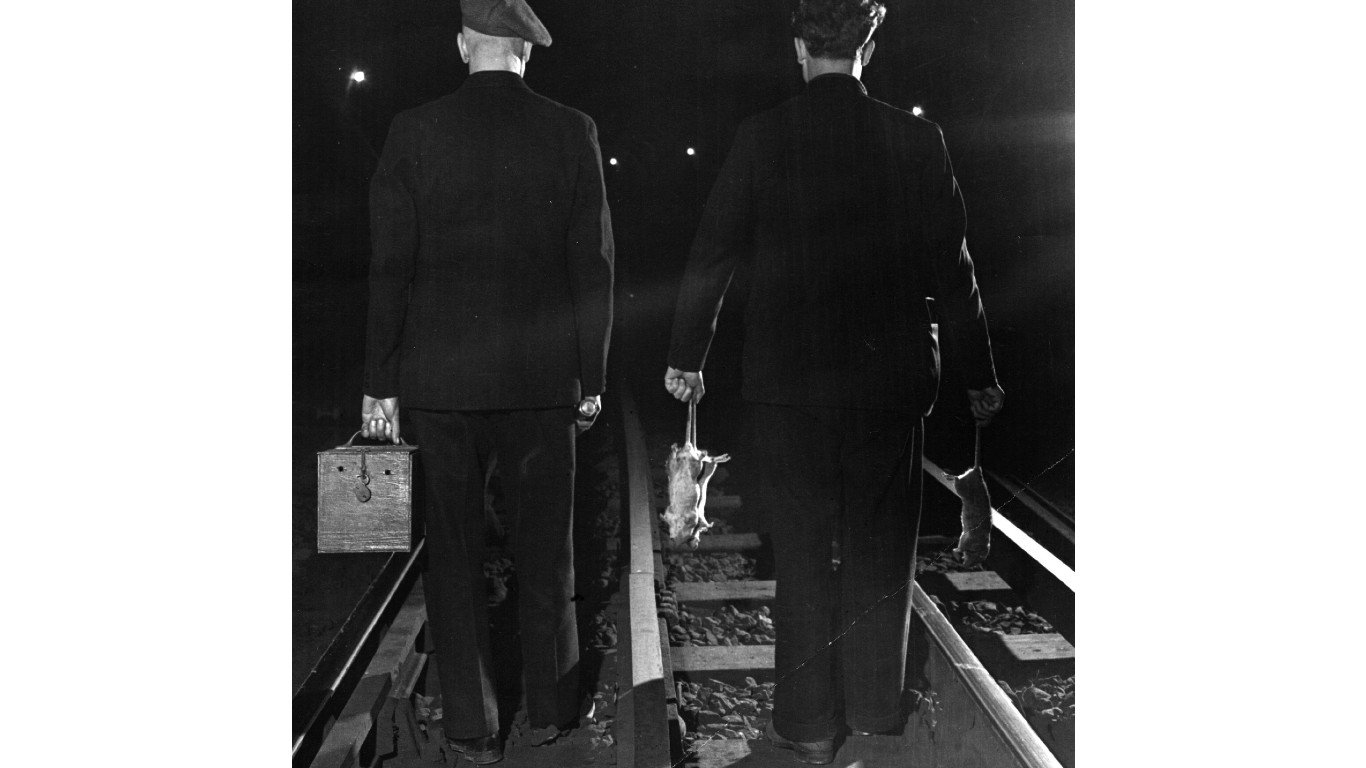
Rat catcher
> In demand approximately until: Early 1900s
Rat catchers were the predecessors of modern-day exterminator, tasked with ridding a city of vermin. Rats carried disease, would get into stored food, and often crawled into straw bedding. Rat catchers were respected professionals who were seen to provide a critical service for towns and cities. Catchers used trained animals, traps, and other methods to nab their prey.
Sin eater
> In demand approximately until: Late 19th century
Sin eaters were paid to eat and drink over a corpse of a suddenly deceased person, therefore “taking on their sins.” It was believed that since the suddenly deceased hadn’t had the opportunity to confess their sins before death they were headed for a rough afterlife. Luckily, a sin eater was able to free them of this burden. It was also believed the procedure would prevent the dead person from returning as a ghost or evil spirit.
[in-text-ad-2]
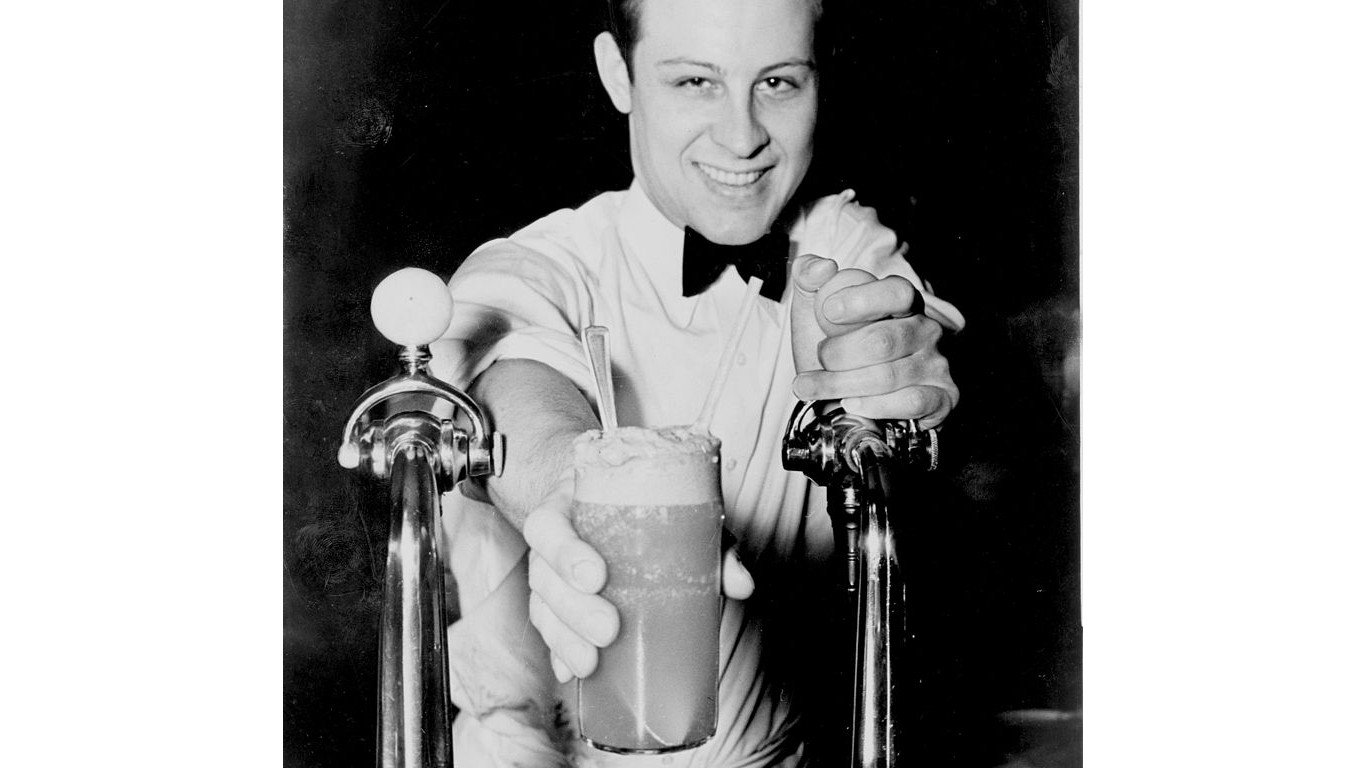
Soda jerk
> In demand approximately until: 1960s
Soda jerks operated soda fountains and made ice cream sodas in drugstores from the 1920s until the 1960s. Soda jerks were famous for their unique lingo and the intense “jerking” motion needed to operate soda machines. The position began to disappear as soda fountains fell out of popularity, though a few still exist.
Switchboard operator
> In demand approximately until: 1990s
Early telephone systems had to be manually rerouted by switchboard operators to connect calls. The job was largely done by women, who interacted directly with customers, helping them with information and making sure the system ran smoothly. The operators also fixed technical problems, making this one of the few technically oriented jobs available to women in the earlier 20th century. By the 1990s, computer-operated switching systems made the job largely obsolete.
[in-text-ad]
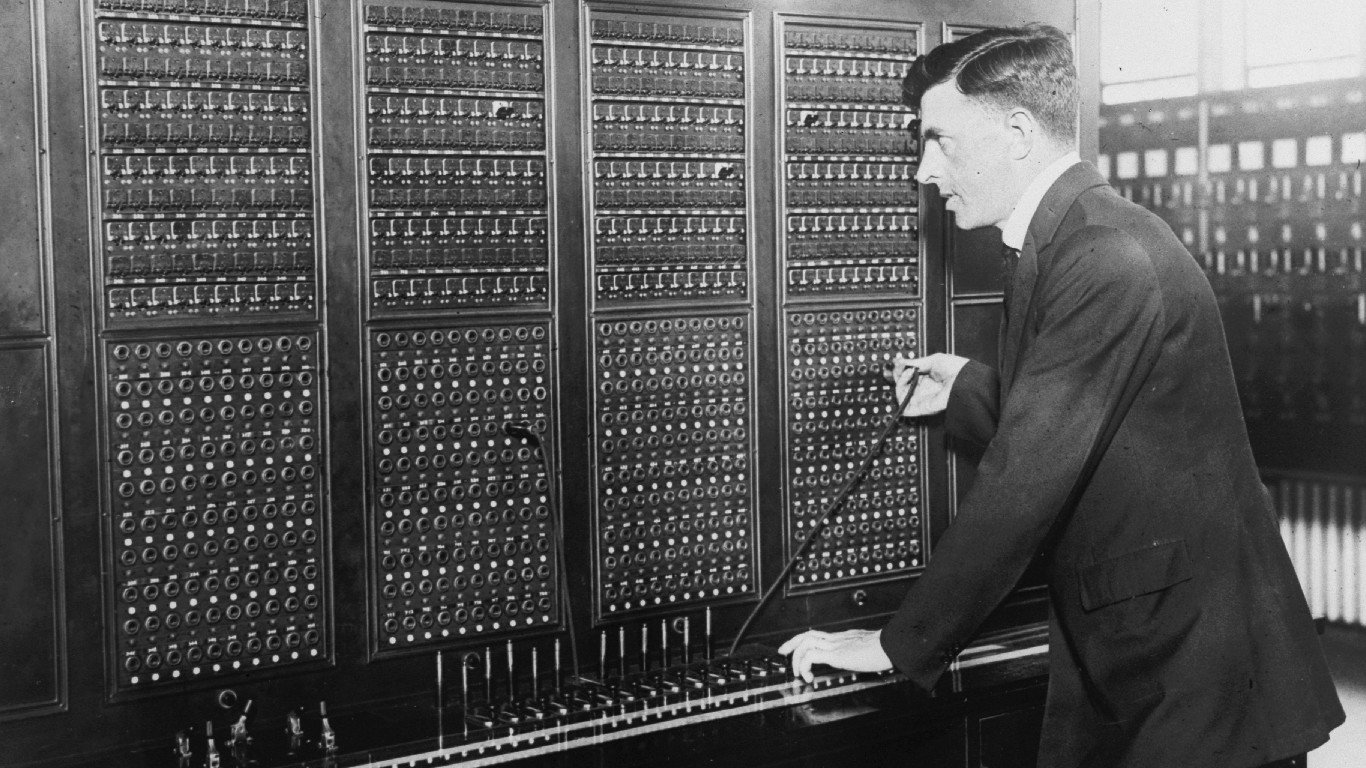
Telegraph operator
> In demand approximately until: 1970s
The electric telegraph first became popular in the mid-19th century and continued to see widespread use all the way into the 1970s. Samuel Morse invented an early system to communicate using the machines that was later modified by Alfred Vail to use dots and dashes to send messages. An upgraded version was eventually adopted internationally and remained the most popular way to communicate using the signal devices. Telegraph operators fell out of demand as other forms of wired and wireless communication became more accessible and affordable.
Town crier
> In demand approximately until: Early 20th century
Once upon a time, the easiest way to get news out was for a person to stand in the middle of a busy part of a town and scream it to the people. For much of history, reproducing written texts was tedious and most people couldn’t read anyway. Town criers would also do things like read out crimes committed at public executions and patrol streets at night.
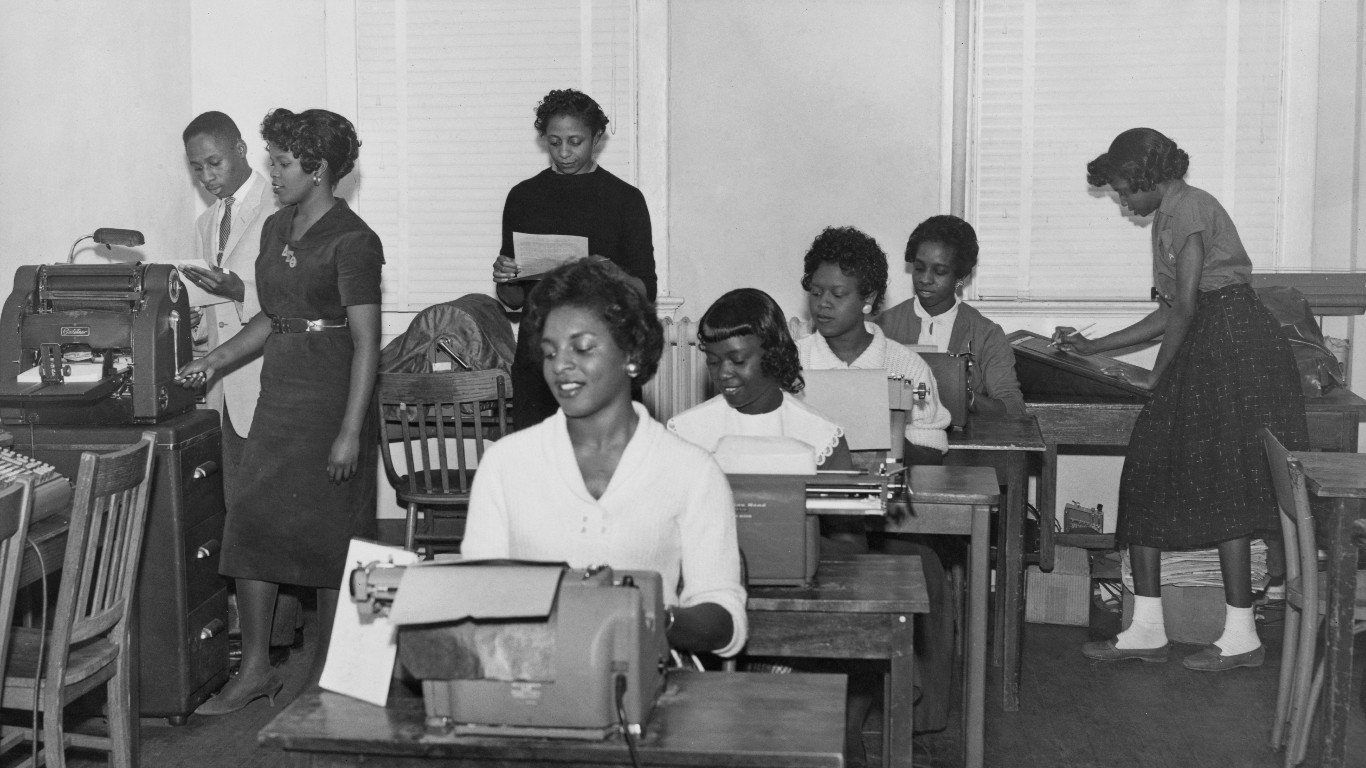
Typists
> In demand approximately until: Late 1990s
In the 1880s, typewriters evolved from a novel invention to one that could save workers a massive amount of time. In turn, the skills needed to operate the devices were In demand and most typists were women. With the rise of computers and expansion of typing skills, specialized typists were no longer needed.
[in-text-ad-2]
VCR Repairman
> In demand approximately until: Late 20th century
Videocassette recorders – VCRs – became popular in the 1970s and were considered cutting-edge technology at the time. These expensive devices required service and repair from trained specialists. While VCR’s are far from the medium of choice these days, there are still some people out there who repair them.
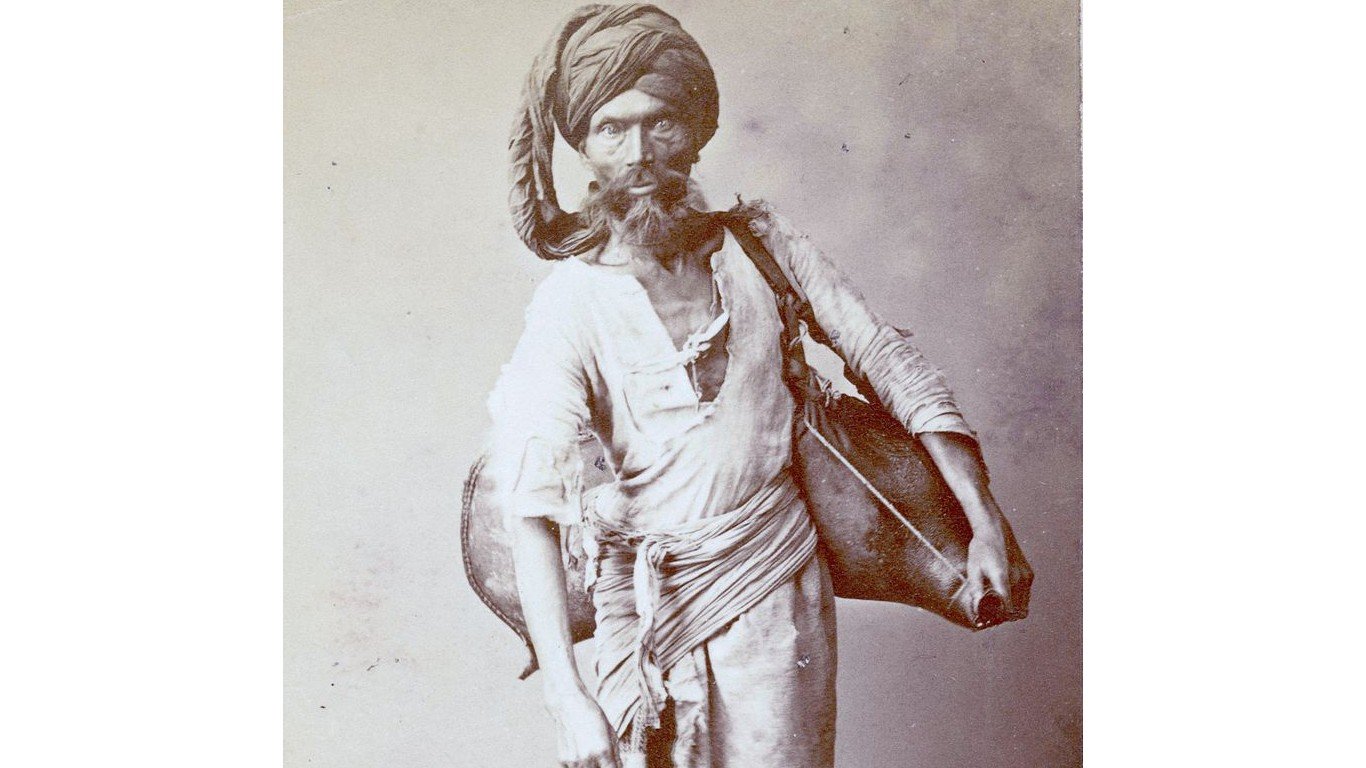
Water carrier
> In demand approximately until: Mid-20th century in some parts of the world
Before centralized water supply systems, someone had to bring water from rivers, lakes, and wells to places where it was needed. The creation of water infrastructure grids rendered the job largely obsolete in most of the world, though it persists in some underdeveloped nations.
Sponsored: Want to Retire Early? Here’s a Great First Step
Want retirement to come a few years earlier than you’d planned? Or are you ready to retire now, but want an extra set of eyes on your finances?
Now you can speak with up to 3 financial experts in your area for FREE. By simply clicking here you can begin to match with financial professionals who can help you build your plan to retire early. And the best part? The first conversation with them is free.
Click here to match with up to 3 financial pros who would be excited to help you make financial decisions.
Thank you for reading! Have some feedback for us?
Contact the 24/7 Wall St. editorial team.
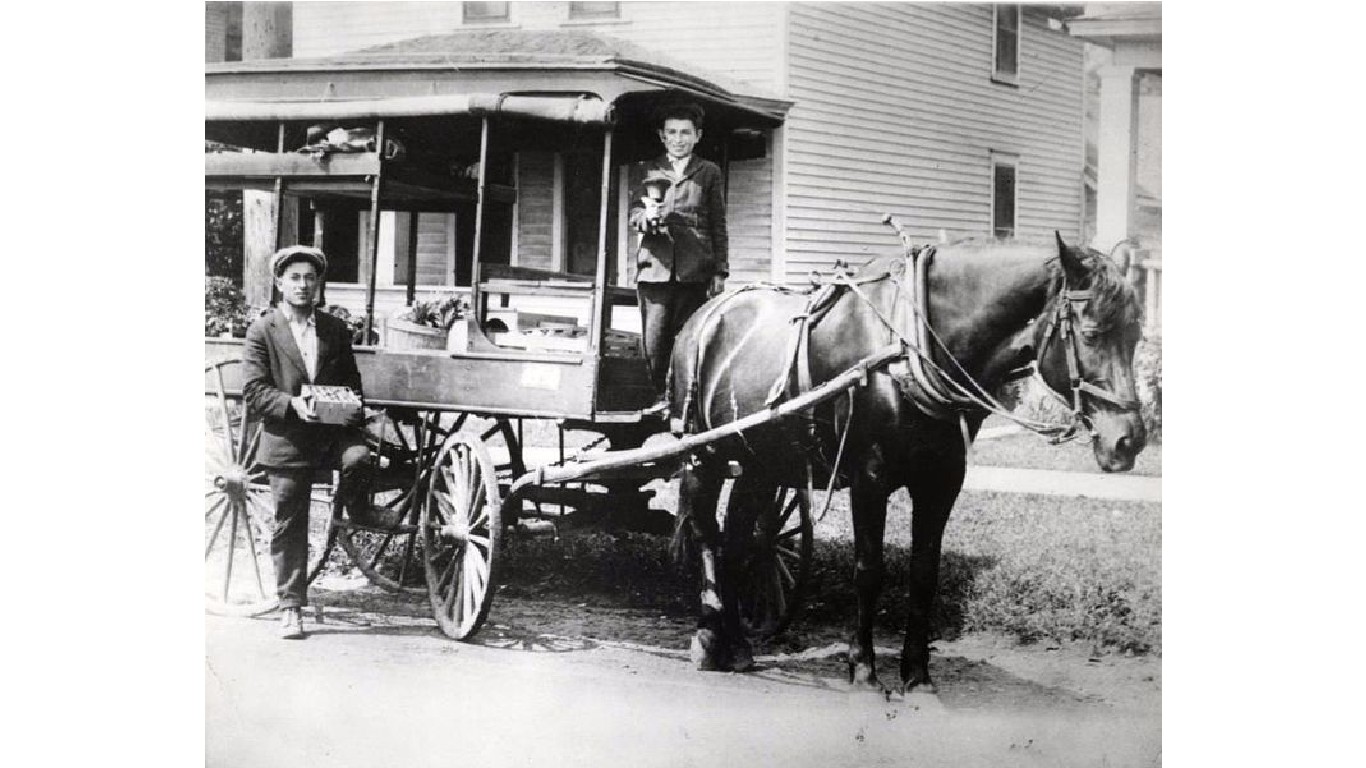

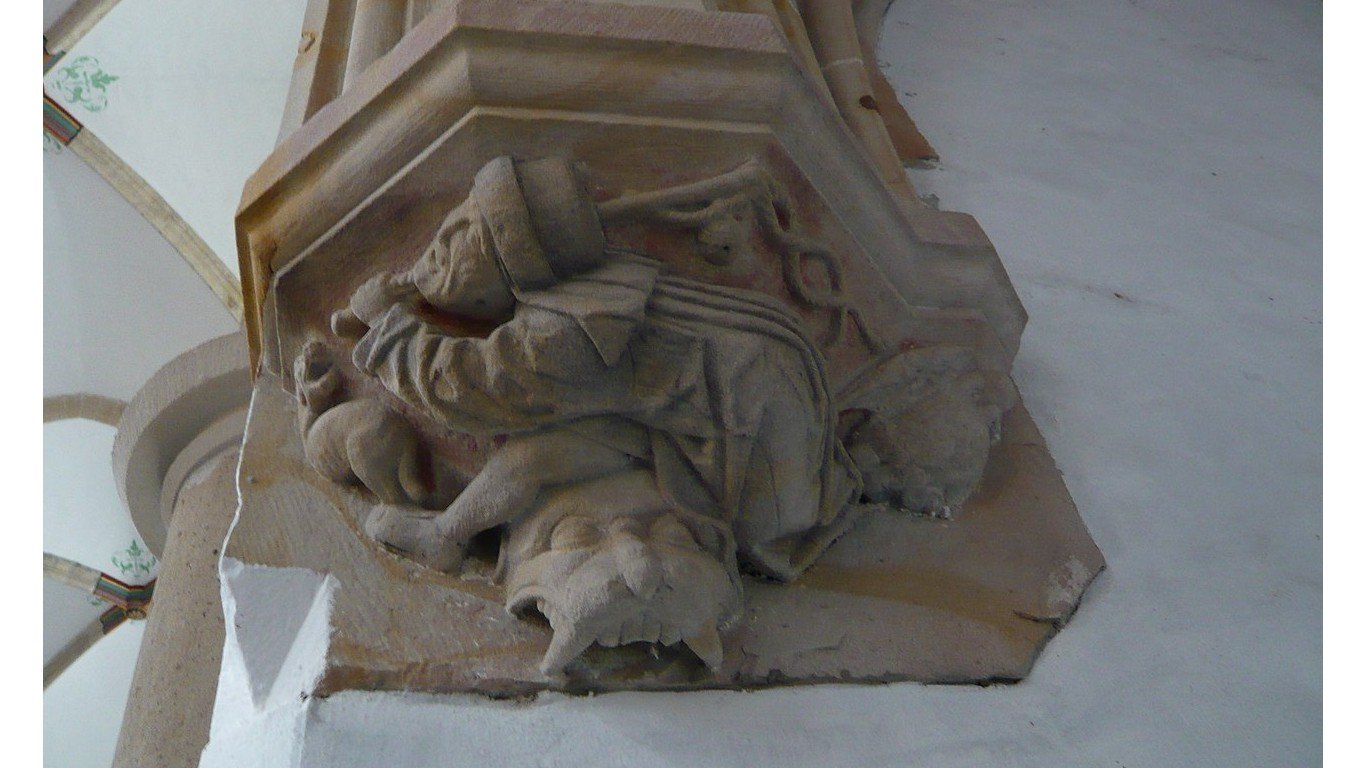
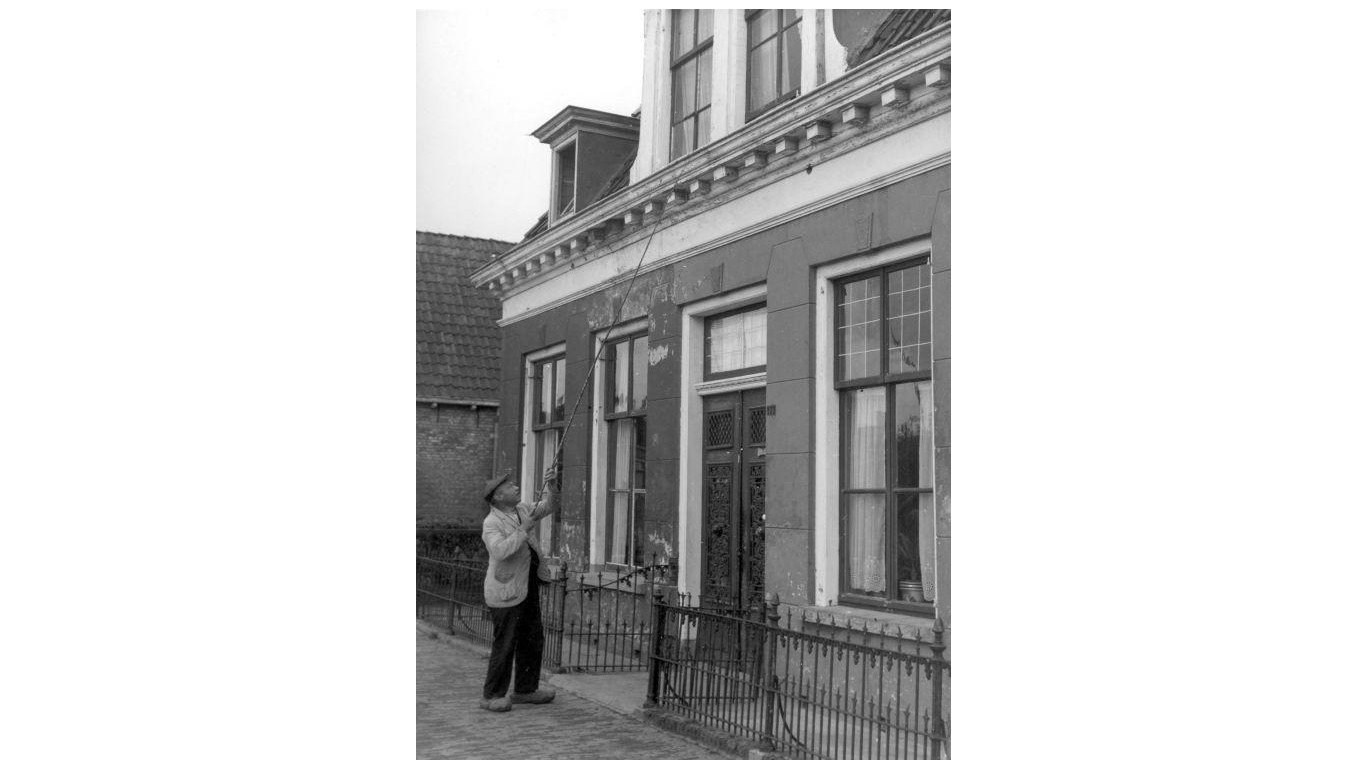
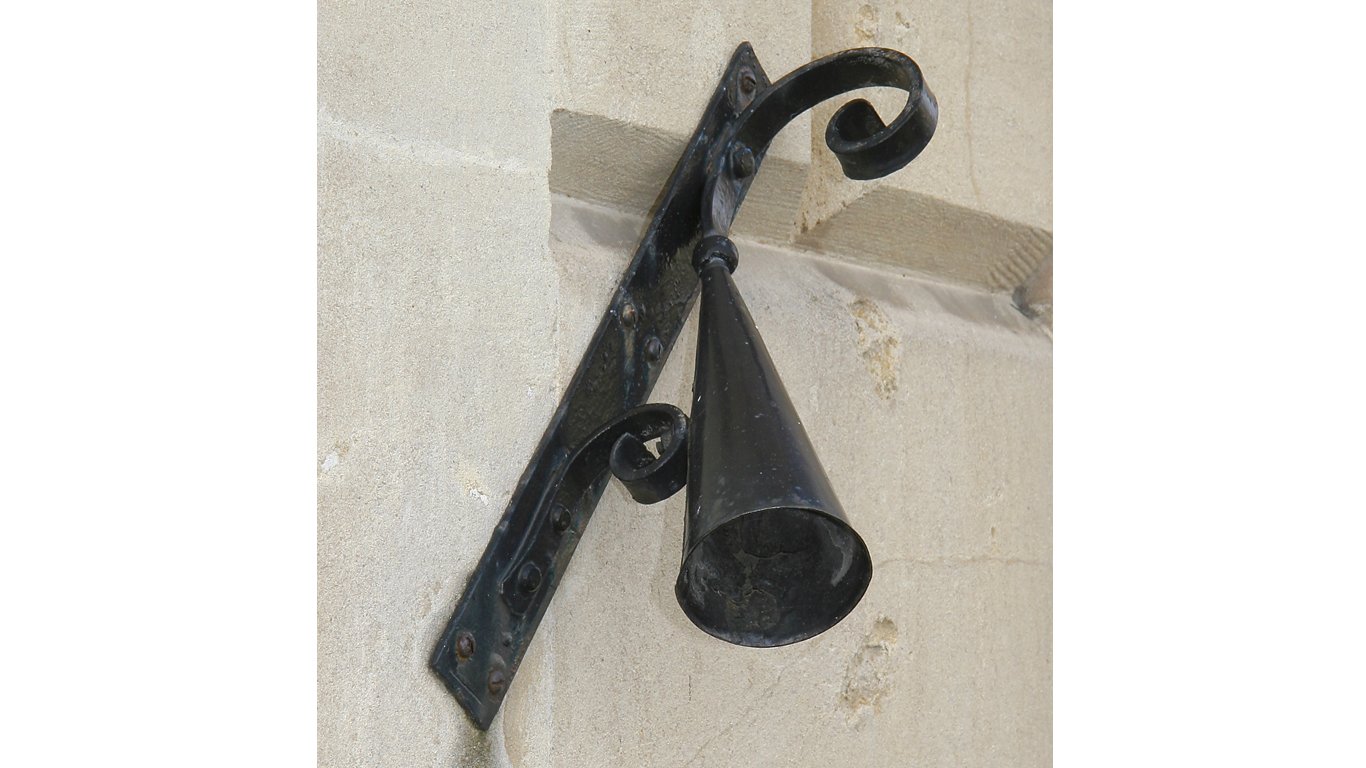
 24/7 Wall St.
24/7 Wall St.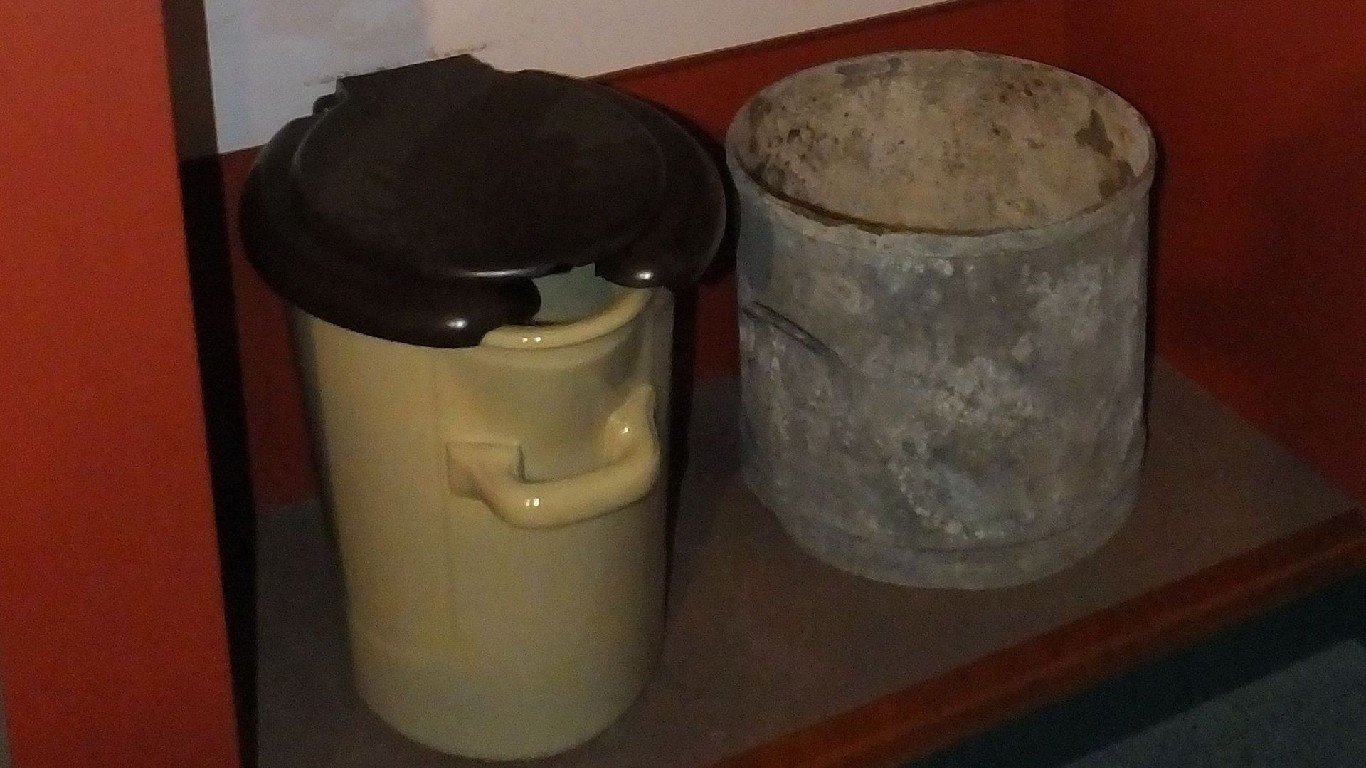
 24/7 Wall St.
24/7 Wall St.